Violins of Hope brings 7 weeks of exhibits, lectures and concerts
With gratitude for their service
Community members voice concern over JAA’s new non-kosher food option
By David Rullo | Senior Sta Writer
From the IDF to Pittsburgh kitchens
 By Toby Tabachnick | Editor
By Toby Tabachnick | Editor
When Pittsburgher Sandy Rosen heard there was a need for docents for an exhibit in Phoenix called “Violins of Hope,” which featured violins lost in the Holocaust, she didn’t hesitate to volunteer.
Rosen, who was spending the winter in Arizona in 2019, is a docent for the Heinz History Center and for the Western Spirit museum in Scottsdale. As she worked with the Violins of Hope exhibit, she saw the impact the instrument’s stories made on people of all ages and religions.
That’s why she decided to bring the exhibit, and a host of other related programming, to Pittsburgh.
Violins of Hope, a multi-dimensional educational project centered on a collection of restored World War II-era violins played by Jewish musicians, opens here on Oct. 7. Rosen, the chair of Violins of Hope Greater Pittsburgh, along with her co-chair, Pat Siger, have partnered with more than 50 local organizations to bring music, dance and theater performances, exhibits, lectures and other events to various local venues.
The centerpiece of the project, the Violins of Hope exhibit, will be displayed at the Posner Center at Carnegie Mellon University, through Nov. 21.
Israeli violin maker Amnon Weinstein and his son Avshi have spent the last 24 years locating and restoring the violins of the Holocaust. Many of the instruments belonged to Jews before and during the war. Some were

donated by or bought from survivors, while others came from family members. Some simply are decorated with Stars of David.
There are more than 100 violins in the collection, Avshi Weinstein told the Chronicle, and about 70 of them will be coming to Pittsburgh. Each one has its own story, which the Weinsteins recorded based on the testimonies of the families who owned them.
For Weinstein, keeping these stories alive is deeply personal.
“On my mother’s side, they were all survivors,” he said. His maternal grandfather, Asael Bielski, was one of the Jewish resistance fighters portrayed in the film “Defiance,” as were his great-uncles. His grandmother spoke about her Holocaust experiences frequently in schools.
Weinstein noted that the generation who can share their Holocaust testimonies firsthand is dwindling, so preserving the stories of the violins and of the people who played them is “very powerful,” he said.

Violins have been popular instruments among Jews for centuries, and some of the most accomplished violinists in the world are Jewish: Itzhak Perlman, Pinchas Zuckerman and Isaac Stern, for example. Weinstein recalled that when Stern was asked why so many Jews chose the violin, he said it was because “it’s the easiest instrument to put in a case and run away.”
Weinstein will come to Pittsburgh for the opening of the exhibit and will participate in some of the events. He encourages the community

Please see Violins, page 12
For more than two weeks, members of the Pittsburgh Jewish community have taken to social media to share their concerns about the Jewish Association on Aging’s plan to offer non-kosher dietary options at Weinberg Terrace and AHAVA Memory Care.


On Aug. 23, those community members met in person to discuss the changes outlined in a letter from JAA’s President and CEO Mary Anne Foley and board Chair Lou Plung sent to residents and family members on Aug. 7.


While kosher meals will still be available at Weinberg Terrace, they will be prepared at the JAA’s main campus on JHF Drive, doublewrapped and then delivered to the personal care community on Bartlett Street. Residents who keep kosher will have the option to sit in areas separate from where non-kosher food is being served.

More than three dozen people — including friends and relatives of JAA residents, former JAA employees and representatives of the Vaad Harabonim of Pittsburgh — met at the Carnegie Library of Pittsburgh’s Squirrel Hill branch to share their frustration and offer ideas to slow or stop the new policy, which the JAA has said won’t be implemented before Sept. 7.
After introductory remarks by organizers Karen Gusky and Julie Lidji, Vaad member Rabbi Yisroel Rosenfeld addressed those in attendance. The rabbi spoke about how important it was for the community to come together. While acknowledging JAA’s new plan, he said that many people around the country find it remarkable that Pittsburgh has a senior residence facility where kosher food is available, and that the community might capitalize on that reputation.
Please see Kosher, page 12
September 1, 2023 | 15 Elul 5783 Candlelighting 7:34 p.m. | Havdalah 8:32 p.m. | Vol. 66, No. 35 | pittsburghjewishchronicle.org $1.50 keep your eye on PittsburghJewishChronicle
FOOD
Turkey gyros (and burgers)
Adam Sandler’s most Jewish film
LOCAL FILM
Reflections: When Carnegie fought the KKK
NOTEWORTHY LOCAL
Page 2 LOCAL
Page 4
The Jewish and Bamilike communities form a bond
Amnon Weinstein, founder of Violins of Hope, in his studio Photo © Daniel Levin 2021
Headlines
Pittsburgh ‘transplants’ Marlene Silverman and Stefanie Small to be recognized for decades of community service
By Adam Reinherz | Senior Staff Writer
Pittsburghers often boast about their generational ties to Western Pennsylvania. Two community members who consider themselves transplants demonstrate the possibility of contributing greatly to Pittsburgh Jewish life even without ancestors from the Hill District, forebears who led congregations or parents who met at Cheat Lake.
Marlene Silverman and Stefanie Small are receiving two of the community’s highest honors during the Jewish Federation of Greater Pittsburgh’s upcoming annual meeting. Silverman will receive the 2023 Emanuel Spector Memorial Award. Small will receive the 2023 Doris & Leonard H. Rudolph Jewish Communal Professional Award. Both awards will be presented at the Jewish Community Center of Greater Pittsburgh on Sept. 6.
Marlene Silverman
For the past 60 years, Silverman has volunteered across the community. She served as head of Hadassah — when the region had more than 4,000 members — held numerous leadership positions at the Federation and was a board member of Congregation Beth Shalom.
“I really feel that I’ve gotten so much more than what I have given,” she said. “The more I do, the more I appreciate how much the community is working on our behalf.”
Silverman — who was born in St. Louis — and her husband moved to Pittsburgh in 1960 after the two met on a blind date in Memphis.

“He was in the Army, stationed in Memphis, and when he was discharged we moved to Pittsburgh, which is where he was born and raised. And I’ve been here ever since,” she said.
Since making Pittsburgh her home decades ago, Silverman has dedicated herself to many
women’s causes. She was initially drawn to the charge because she was searching for friends, she said, but she quickly learned the tremendous good that comes from volunteering with others.
“I am a member of every Jewish women’s organization,” she said. “I have been to Israel more than 24 times, and I have dear friends in Israel that I visit and they visit me.”
Creating partnerships and relationships with others both locally and internationally made her realize that “the more I do, the more I love and the more I want to continue,” she said.
Silverman, 82, is just starting to slow down.
“I don’t have quite the time or energy anymore to do what I did before, but I’m hanging in there,” she said.
Still, Silverman volunteers at Family House once a week and hopes younger people can lend their time and talents to bolstering the community.
“It’s important to give back,” she said. “If you have been blessed with good things happening, or you reap the benefits of the work of the Federation or an agency then I think it’s your responsibility to give back — and I’ve always felt that as I’m giving back I’m getting more. I have made some amazing friends, traveled to great places and done a lot of things because of my involvement that I wouldn’t have probably had otherwise. So it’s a win-win.”
person who cares deeply. This award means a lot, and I’m a very happy person. I have a phenomenal family. My life is good. We all have issues and, unfortunately, not all things are happy, but I consider myself a happy, blessed person.”
Stefanie Small
Former Long Islander Stephanie Small has worked at JFCS for the past 23 years. After completing her social work internship (also at JFCS), she joined the staff.
That “seamless” transition, she said, was just the beginning of a meaningful professional experience.
Since starting as a geriatric social worker, Small has done case management, therapy and facilitated a caregiver support group. She still performs those duties but has adopted greater administrative responsibilities over time.
About nine years ago, Small became director of clinical services, overseeing the organization’s counseling department and seniors department.

Going from “micro to macro,” she said, gave her a greater understanding of community.
“My eyes are opened in a different kind of way,” she said. “When you’re working one-on-one, you really just see the daled amos (6 feet) around you. You only see the problems of that particular
client: the issues, the challenges and how to help them reach their goal. But as you delve more into the community itself, you see patterns, you see trends, you see traditions.”
Pittsburgh is proud of its past, but one thing that’s great about working for the community is helping others recognize when “maybe it’s time we change,” she said.
Small, 45, said she understands fears and concerns spurred by newness.
“Change is scary, but change isn’t bad,” she said. “I had to change my whole life when I moved here from Long Island. I picked up and moved, and I still miss the ocean at times. But you realize that change is not bad.”
That attitude has netted professional success, she explained.
“I always have to be aware that just because we’ve done it that way doesn’t mean we continue. Outside forces — like funding and government involvement — push you along, so you have to either go along with the waves of change or you get thrown off to the side,” she said.
Small credited JFCS with being like-minded: “Through our work, we’ve been able to always innovate. Whenever something happens in the community, we respond to it and then see what is the next trend.”
She also credited the organization with helping her reach this point.
“I love what I do and I love where I work. People should know that where you work does matter,” Small said. “The reason I’ve been able to be at JFCS for 22 years — 23 years if you count my internship year — is because of what JFCS stands for, who works at JFCS, who supports you at JFCS and that they continue to be there, for their employees and for the community, from time immemorial. I could not have done this in another place.” PJC
5915 Beacon St., 5th Floor Pittsburgh, PA 15217
Main phone number: 412-687-1000
Subscriptions: 412-687-1000, ext. 2
SUBSCRIPTIONS subscriptions@pittsburghjewishchronicle.org
412-687-1000, ext. 2
TO ADVERTISE advertising@pittsburghjewishchronicle.org
412-687-1000
EDITORIAL DEPARTMENT
Email: newsdesk@pittsburghjewishchronicle.org
BOARD OF TRUSTEES
Evan H. Stein, Board Chair
Gayle R. Kraut, Secretary
Evan Indianer, Immediate Past Chair
Gail Childs, Dan Droz, Malke Steinfeld
Frank, Seth Glick, Tammy Hepps, Judith Kanal, Cátia Kossovsky, Charles Saul, Derek Smith
GENERAL COUNSEL
Stuart R. Kaplan, Esq.
Jim Busis, CEO and Publisher 412-228-4690 jbusis@pittsburghjewishchronicle.org
EDITORIAL
Toby Tabachnick, Editor 412-228-4577 ttabachnick@pittsburghjewishchronicle.org
Andy Gotlieb, Contributing Editor
Adam Reinherz, Senior Staff Writer 412-687-1000 areinherz@pittsburghjewishchronicle.org
David Rullo, Senior Staff Writer 412-687-1000 drullo@pittsburghjewishchronicle.org
ADVERTISING
Maureen Busis, Account Executive 412-736-3141 mbusis@pittsburghjewishchronicle.org
PRODUCTION
Jeni Mann Tough Production Manager
Carl Weigel
Art/Production Coordinator Subscriptions subscriptions@pittsburghjewishchronicle.org
412-687-1000, ext. 2
Published every Friday by the Pittsburgh Jewish Publication and Education Foundation 5915 Beacon St., 5th Floor Pittsburgh, PA 15217
Phone: 412-687-1000
POSTMASTER:
Send address change to PITTSBURGH JEWISH CHRONICLE, 5915 BEACON ST., 5TH FLOOR PITTSBURGH, PA 15217

(PERIODICAL RATE POSTAGE PAID AT PITTSBURGH, PA AND AT ADDITIONAL MAILING OFFICES)

USPS 582-740
Manuscripts, letters, documents and photographs sent to the Pittsburgh Jewish Chronicle become the property of this publication, which is not responsible for the return or loss of such items.
The Pittsburgh Jewish Chronicle does not endorse the goods or services advertised or covered in its pages and makes no representation to the kashrut of food products and services in said advertising or articles. The publisher is not liable for damages if, for any reason whatsoever, he fails to publish an advertisement or for any error in an advertisement. Acceptance of advertisers and of ad copy is subject to the publisher’s approval. The Pittsburgh Jewish Chronicle is not responsible if ads violate applicable laws and the advertiser will indemnify, hold harmless and defend the Pittsburgh Jewish Chronicle from all claims made by governmental agencies and consumers for any reason based on ads appearing in the Pittsburgh Jewish Chronicle

2 SEPTEMBER 1, 2023 PITTSBURGH JEWISH CHRONICLE PITTSBURGHJEWISHCHRONICLE.ORG
— LOCAL —
Adam Reinherz can be reached at areinherz@pittsburghjewishchronicle.org.
p Marlene and Arthur Silverman are joined by their four sons. Courtesy of Marlene Silverman
p Stefanie Small Courtesy of Stefanie Small
Israeli sous chef relishes life in Pittsburgh
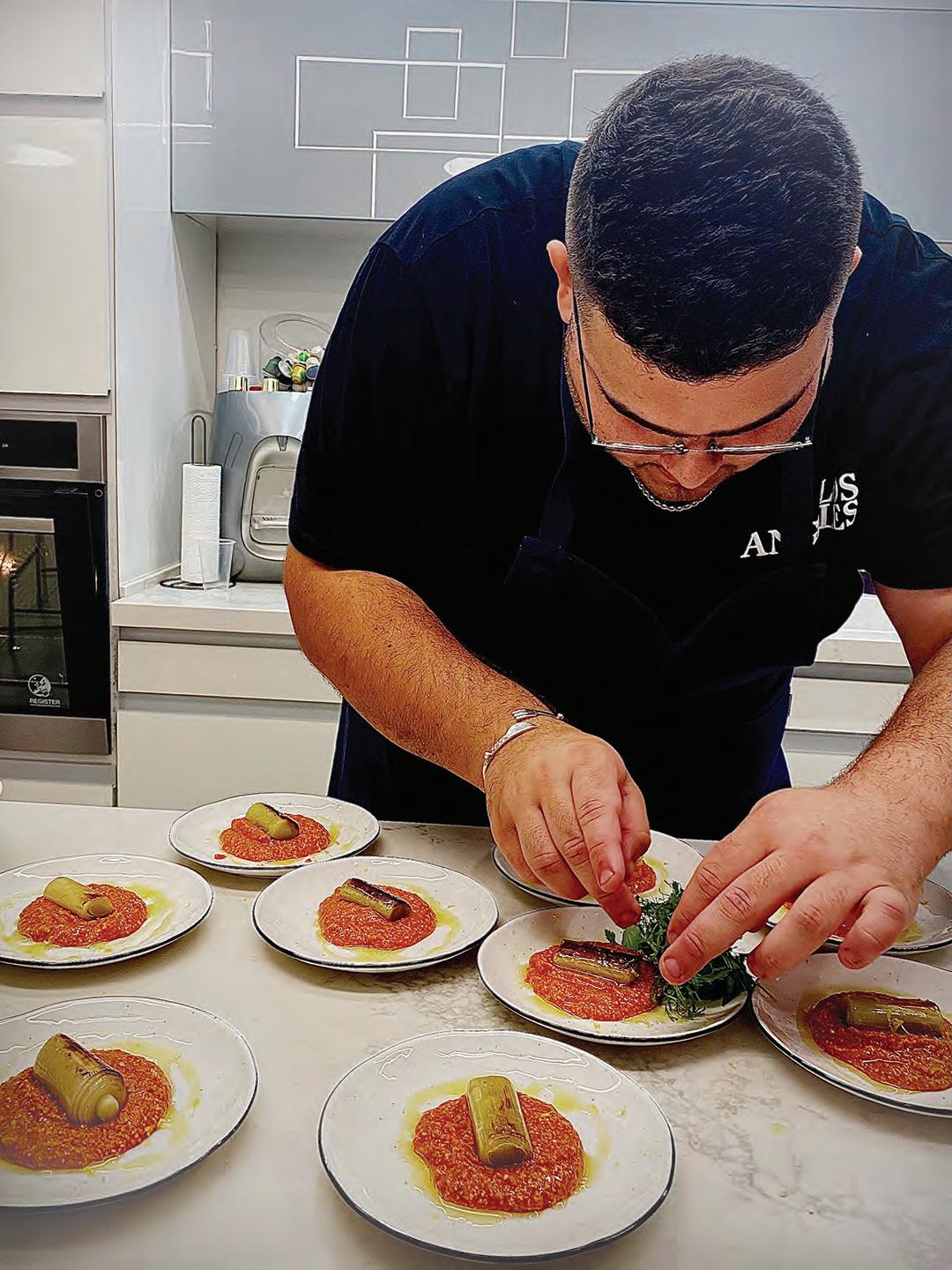
eager to continue a culinary path that began alongside his mother when he was 9.
By Adam Reinherz | Senior Staff Writer
Israeli sous chef Nati Press is cooking up something new — his career.
After completing two years and eight months in the Israel Defense Forces, Press moved to Pittsburgh last spring.
He lives with family in Mt. Lebanon — his grandmother is Judy Press, a Jewish author whose children’s books are touted by PJ Library — but said he’s moving to Lawrenceville in the coming weeks.
For now, the new Pittsburgher is focused on “settling in.” From there, he said, he’ll “see what happens.”
Press works at the Richard DeShantz Restaurant Group, which operates several eateries in the city, including Meat and Potatoes, Fish nor Fowl and Sally Ann’s. The long days, which often span “12-13 hours on your feet,” are challenging, he said, but “the reward is big.”
Whether it’s observing beautifully plated dishes, hearing compliments from servers or seeing the faces of satisfied diners, Press is
“She had a catering business. I used to work with her very early and I liked that,” he said.
Press later attended a specialized high school in Tel Aviv. Three days a week were dedicated to culinary education; the remainder focused on science, history and other traditional subjects, he said.
The Paris-born Israeli always thought he’d be a chef in the army, but when an opportunity in intelligence arose, he took it and quickly discovered how much he enjoyed his peers and a familiar setting.
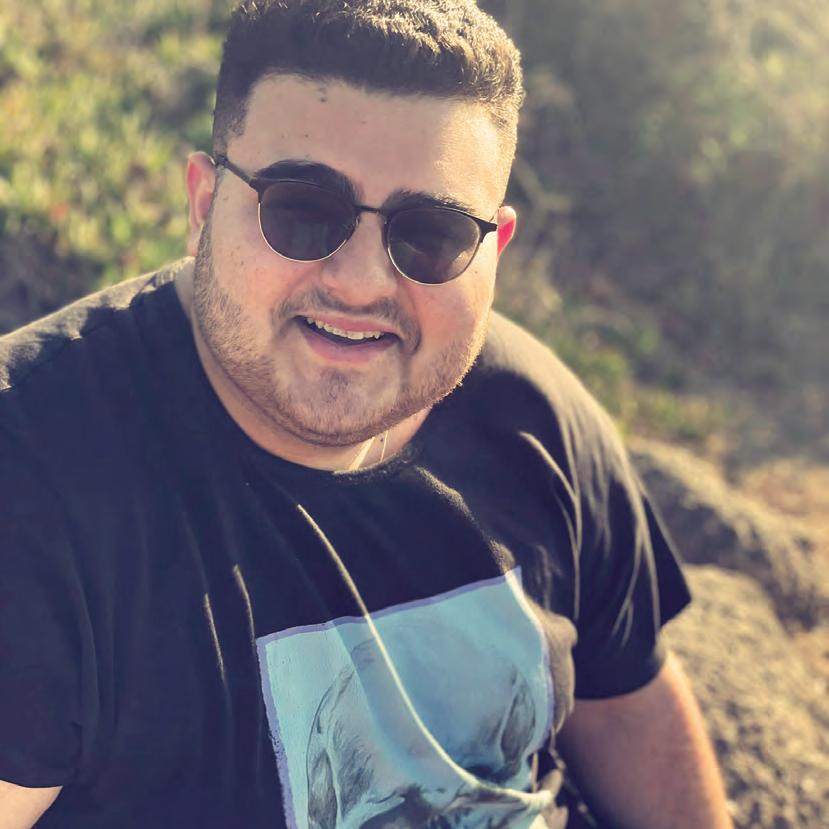
“The group of people that I worked with, and the group of people that I had, it’s like they’re my brothers,” he said.
“I mean, it was tough, but I had a good time.”
There are obvious differences between working in a restaurant and military service, but the similarities are worth noting, Press explained.
“In the kitchen, there’s a lot of action,” he said. “Something can always happen, which is why I enjoyed the army. I’m big on adrenaline.”
kitchen — obviously that has to be — because you’re working so hard together. This is why I love the parallel between the army and the kitchen; it’s very similar to me.”
Mere months removed from completing
Restaurant Association; still, 500,000 new jobs are expected to help the industry surpass pre-pandemic levels by the end of 2023.
Press understands that moving forward in the field requires a full plate of learning,
compulsory service, Press is adjusting to a new life and learning an industry. Whether it’s regional foods, seasonal menu changes or even bookkeeping, countless ingredients are required for running a successful restaurant.
Press wants to have his own within five years. Getting there, he said, will require significant investments of time, learning and resources.
It’s not an easy business. According to the National Restaurant Association, about a third of restaurants fail in their first year. Recent data points to staffing shortages and rising costs but also offers promise.
Between April 2022 and March, there was a 10% increase in new restaurants opening versus the same period one year
patience and hustle. He said that while he’s trying to succeed in the restaurant business, he’s also branching out in Pittsburgh.
“I would love to do more in the Jewish community,” he said.
Press — who grew up in a kosher home but no longer observes the religious dietary practice — said he’s happy to cook and share what he’s learned in the army and in countless kitchens.
There are definite goals for the future, but for now “I’m just doing my thing,” he said. “Keep on grinding, just working.” PJC
Adam Reinherz can be reached at areinherz@pittsburghjewishchronicle.org.
PITTSBURGHJEWISHCHRONICLE.ORG PITTSBURGH JEWISH CHRONICLE SEPTEMBER 1, 2023 3
Headlines — LOCAL —
“There’s a very big sense of camaraderie in a kitchen — obviously that has to be — because you’re working so hard together.”
– NATI PRESS
p Nati Press plates a private dinner in Israel. Photo courtesy of Nati Press
p Nati Press
Photo courtesy of Nati Press
www.pittsburghjewishchronicle.org
Jewish Pittsburgher honored by Bamileke community
By David Rullo | Senior Staff Writer
Noah Schoen and Alain Tamonoche have something in common that both wish they didn’t.
They each are members of communities whose modern experiences were shaped by genocide —Schoen as a Jew and Tamonoche as a Bamileke, a people living in Cameroon who were victims of genocide beginning in the late 1950s when Cameroonian troops, under the leadership of the French army, razed the city of Yogandima.
Unlike the Holocaust though, the Bamileke genocide has gone largely unreported.
Tamonoche sought political asylum in 1999 and immigrated to Newark, New Jersey. He moved to Pittsburgh in 2003, where he was one of fewer than 50 Bamileke. The community here has since swelled to nearly five times that size.
While planning a commemoration of the genocide that took place in Cameroon, Tamonoche and other organizers decided to see if they could contact other groups of people with similar experiences.
Tamonoche learned through an article in the Pittsburgh Jewish Chronicle about David Rosenberg, whose work chronicling the Jews of Somme, France, who were murdered by the Nazis during World War II, was being exhibited at the Holocaust Center of Pittsburgh.
Tamonoche reached out to the center and met with Schoen, its community outreach associate, and its then-director, Lauren Bairnsfather.
Schoen said the similarities between what the two groups experienced were striking.
“ The stories of genocide … were so dense and so powerful,” Schoen said. “Lauren and I looked at each other and said, ‘We’ve got to do something.’”
That something began as behind-thescenes support as the Bamileke planned what would be their second Pittsburgh commemoration. It eventually included three volunteers from the Holocaust Center, all children of survivors: Rebecca Jacobson, Adi Rapport and Debbie Stueber. Both Jacobson and Stueber spoke at the commemoration about their experiences as descendants of genocide, and Rapport hosted a dinner at her home for members of the two communities.
“I can say that the Bamileke group was honestly wondering what connection they could have to our community and by the end of the commemoration, I would say, their eyes were open, as ours were,” Stueber noted.
She said she was blown away by the information she learned about the Bamileke genocide and the lack of publicity and awareness around it.
Jacobson pointed out that after World War II, the Nazis were punished for the Holocaust.
“That obviously hasn’t happened here,” she said. “It’s still ongoing. It’s not like it’s ever really stopped. It’s been ongoing in fits and starts.”
The number of Bamileke killed — beginning during Cameroon’s war for independence from the French and continuing at the hands of the country’s own military — is unknown, but may number in the tens of thousands. Tamonoche said as many as 700,000 Bamileke may have been murdered.
Stueber said the lack of publicity can, in part, be attributed to fear, something she witnessed firsthand.
“When we had the potluck dinner at Adi’s, the people we spoke with were afraid,” she said. “They were afraid for their families back in Cameroon, so they don’t speak out.”
Th ey have good reason for their trepidation.
S choen said the Bamileke people experience periodic state-sanctioned harassment. When families travel, Tamonoche said, they split up into multiple vehicles so that if the military stops one of the cars, the entire family won’t be lost.
“Another reason for the lack of awareness is that they are only just beginning to tell these stories in public and we are helping to support and amplify those stories,” Schoen said. “In oral history, we mention that often people tell their stories, but no one is listening. This work by the Bamileke people might be the first step in people listening.”
The Pittsburgh Jewish community understands the terror of being targeted. It also knows the power of having people outside of its community reach out.
Rapport said that during the dinner she hosted she saw a bond forming between the two groups.
“I think trust was built that evening, that sense of, yes we are here to help you but also we feel it in our heart, we understand. I think it’s important to build t hat awareness and connection, not just as a Holocaust center but as friends and people,” she said.
That shared community was reciprocated on Aug. 26 when the Bamileke people held a reception in honor of Foh Njitack Ngompe Péle, king of the Bamileke kingdom of Bafoussam in Cameroon.
www.pittsburghjewishchronicle.org
The program included a ceremony to honor Schoen for his work with the community and Pittsburgher Gordon Manker, who recently learned of his Bamileke heritage through an AfricanAncestry.com DNA test.
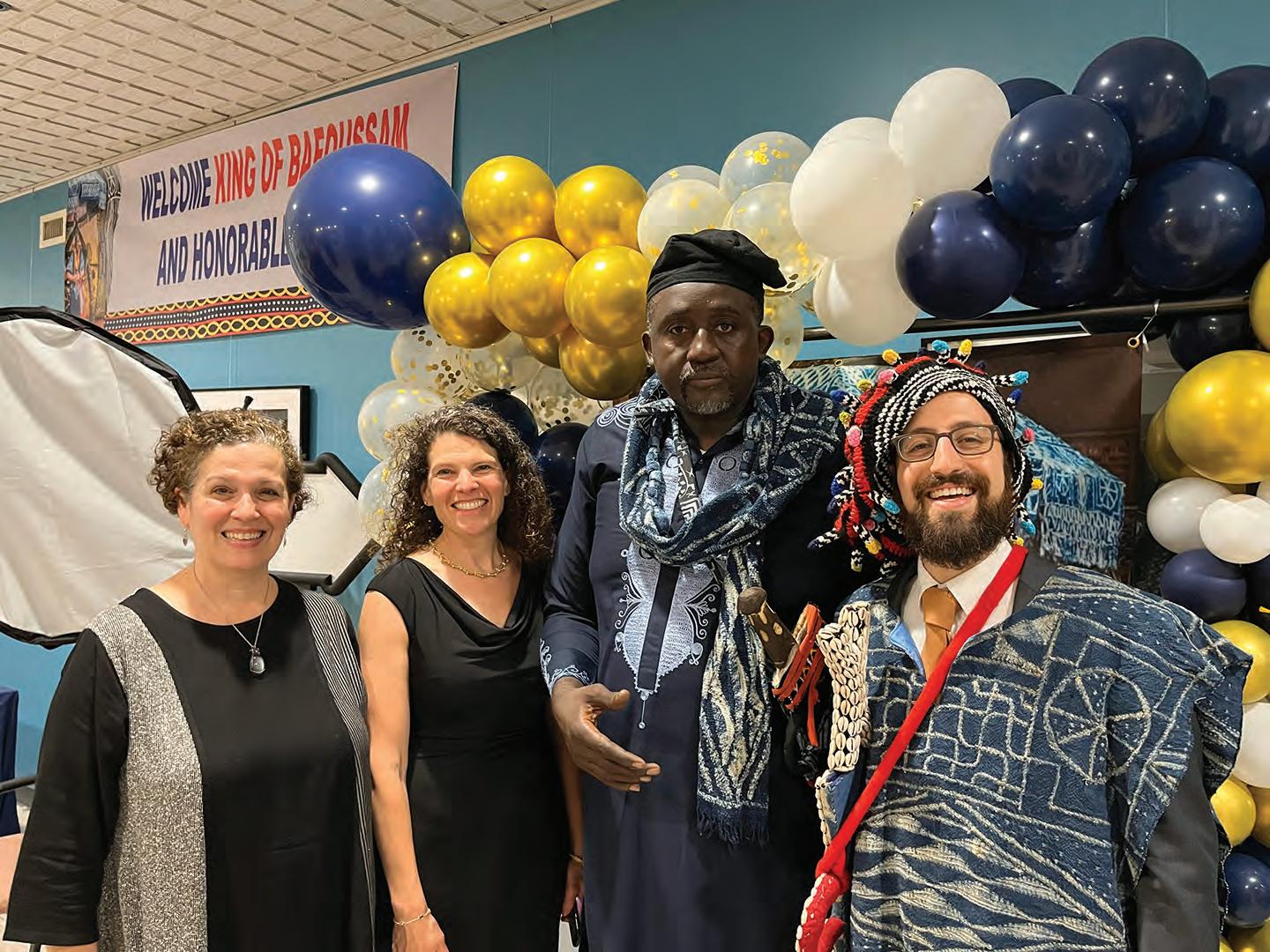
Tamonoche said that the event was an opportunity for people to get to know the Bamileke people’s traditions and cultures.
“We have a lot to offer the city of Pittsburgh,” he said. “We look forward to working together with our neighbors.”
Schoen said he’s pleased with the part both he and the Holocaust Center have played in bringing the Bamileke genocide to light.
“
The goal of genocide,” he said, “is not just killing people: It’s erasure. So, one of the most important things we can do to combat genocide is to make it visible.”
The Holocaust Center, Schoen said, is inspired by the resilience and bravery of the Bamileke people.
“I am humbled and honored to have received this award,” he said. PJC
4 SEPTEMBER 1, 2023 PITTSBURGH JEWISH CHRONICLE PITTSBURGHJEWISHCHRONICLE.ORG
Headlines — LOCAL —
David Rullo can be reached at drullo@ pittsburghjewishchronicle.org.
p From left: Rebecca Jacobson, Emily Loeb, Alain Tamonoche and Noah Schoen pose at a reception honoring the Bamileke king of Bafoussam during his visit to Pittsburgh.
Photo by Rocky Schoen
“We have a lot to offer the city of Pittsburgh. We look forward to working together with our neighbors.”
– ALAIN TAMONOCHE
Preserving history: Reflections on a century-old riot in Carnegie
By Adam Reinherz | Senior Staff Writer



If the Klan storms Carnegie and no one remembers, did it happen?
The question of historical record, and the responsibility of preserving unsavory events, was raised by local residents and panelists on Aug. 23 at the Andrew Carnegie Free Library & Music Hall in Carnegie, Pennsylvania.

Daniel J. McGrogan and Jeffrey R. Keenan of the Historical Society of Carnegie recounted how, a century earlier, thousands of Ku Klux Klan members targeted the area.
On Aug. 25, 1923, between 10,000-20,000 Klansmen traveled to Carnegie.
Trains, horses, carts and even boats made it “an easy place to get to,” Keenan said. Once the torch-carrying hatemongers arrived, they found a site with people who were “sympathetic to their cause” and individuals to attack.
At the time, Carnegie — whose population was approximately 8,000 — was “a mill town and railroad center with a number of coal mines both in town and near its outskirts,” McGrogan said. When three specialty steel mills expanded, and the need for skilled and unskilled labor grew, “the call was heard by newer immigrants from Eastern and Southern Europe.”
In the early 20th century, Carnegie transformed into a “moderate-sized trading center,”
wrote Ruggero J. Aldisert, a Carnegie-born U.S. Circuit Judge in his memoir “Road to the Robes.”
Citing Aldisert’s work, McGrogran noted that the commercial hub for nearby farms and coal mines evolved and “what was once an ethnically homogeneous Protestant community became a babel of foreigners.”
The Klan, which formed during
the Reconstruction, experienced a resurgence in 1915.
Driven by opposition to “Catholic and Jewish immigrants,” the group attracted national support, and over 10 months, membership surged from “a few thousand to 100,000,” McGrogan said. By 1925, the group had 4 million members.
Initially, the majority of the Klan’s “savagery” targeted Black people. Over time, however, Catholics, Jews, liberals and progressives faced an entity whose hatred stemmed from the results of industrialization, urbanization and immigration, McGrogan said. Members of the Klan were “mostly white Protestant middleclass men,” who thought their actions were both moral and religious.
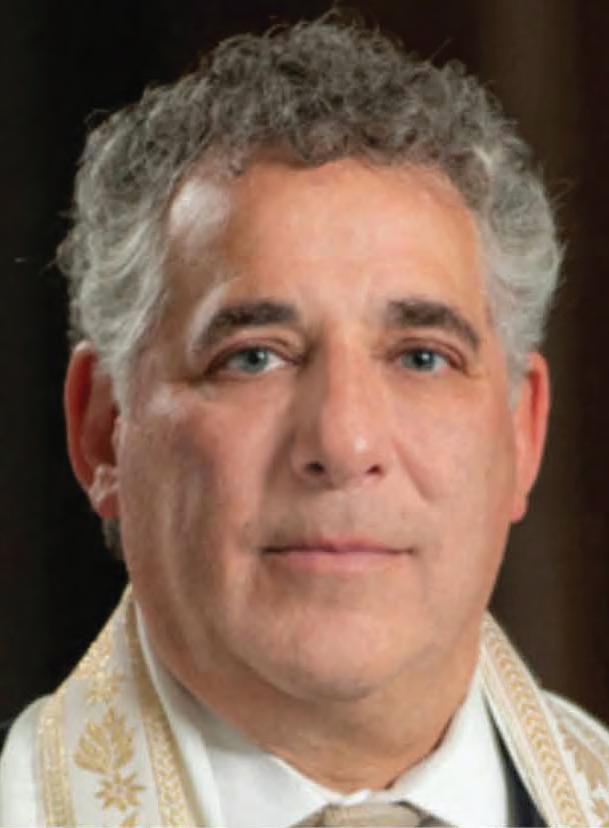
“They saw themselves as vigilantes restoring justice when they used intimidation, threats of violence and actual violence to prevent Blacks, immigrants, Catholics, liberals and progressives from attaining wealth and social status,” he said.
Battle on the bridge
The 10,000-20,000 Klansmen, who began their trek after nightfall on Aug. 25, followed a route from Carnegie Park, which is about 1,000 feet above sea level, to an area 300 feet below. The topography matters, Keenan said, because the descent facilitated a “spectacular recruiting drive that can be seen all through the valley.”
This wasn’t just people strolling, he continued. There were bands, souvenir stands, food trucks and “burning 30-foot crosses.”
For nearly 45 minutes, Klan members marched “six abreast with military precision” down the two-mile path.
“They’re chanting, they’re singing, beating
PITTSBURGHJEWISHCHRONICLE.ORG PITTSBURGH JEWISH CHRONICLE SEPTEMBER 1, 2023 5 Headlines — LOCAL — EVERYONE WELCOME ROSH HASHANAH SEPTEMBER 15 7:30–9PM YOM KIPPUR SEPTEMBER 24 7:30–9PM
Please see Carnegie, page 13
p Panelists recount the events of Aug. 25, 1923.
Photo by Adam Reinherz
Submit calendar items on the Chronicle’s website, pittsburghjewishchronicle.org. Submissions also will be included in print. Events will run in the print edition beginning one month prior to the date as space allows. The deadline for submissions is Friday, noon.
q FRIDAY, SEPT. 1
Rodef Shalom Congregation wants to spend Shabbat with you. Families with young children are invited to join Cantor Toby Glaser and Family Center Director Ellie Feibus for a pre-Shabbat playdate, services and dinner to celebrate Shabbat together. $5 per family. 4:30 p.m. $5 per family. 4905 Fifth Ave. rodefshalom.org.
q SUNDAYS, SEPT. 3 – DEC. 3
Join Chabad of Squirrel Hill for its Men’s Tefillin Club. Enjoy bagels, lox and tefillin on the first Sunday of the month. 8:30 a.m. chabadpgh.com.
q SUNDAYS, SEPT. 3 – DEC. 17
Join a lay-led online parshah study group to discuss the week’s Torah portion. No Hebrew knowledge needed. The goal is to build community while deepening understanding of the text. 8:30 p.m. For more information, visit bethshalompgh.org.
q MONDAYS, SEPT. 4 – DEC. 18
Join Congregation Beth Shalom for a weekly Talmud study. 9:15 a.m. For more information, visit bethshalompgh.org.
q TUESDAY, SEPT. 5
Join Chabad of Greenfield for a Pre-Rosh Hashanah women’s challah bake. 7:30 p.m. $18. 4315 Murray Ave. ChabadofGreenfield.com/highholidays.
Join Chabad of Squirrel Hill for a Men’s Farbrengen, an uplifting evening on the birthday of the Baal Shem Tov and Alter Rebbe, complete with l’chaim, inspiration and music. 7:30-10 p.m. 1700 Beechwood Blvd. chabadpgh.com.
q WEDNESDAYS, SEPT. 6 – DEC. 20
Join AgeWell for an intergenerational family dynamics discussion group, led by intergenerational specialist/presenter and educator Audree Schall. Third Wednesday of each month. Free. 12:30 p.m. South Hills JCC.
q WEDNESDAYS, SEPT. 6 – DEC. 27
Bring the parashah alive and make it personally relevant and meaningful with Rabbi Mark Goodman in this weekly Parashah Discussion: Life & Text. 12:15 p.m. For more information, visit bethshalompgh.org/life-text.
Temple Sinai’s Rabbi Daniel Fellman presents a weekly Parshat/Torah portion class on site and online. Call 412-421-9715 for more information and the Zoom link.
q THURSDAY, SEPT. 7
Women are invited to join Chabad of Squirrel Hill
for Loaves of Love. Bake festive Rosh Hashanah challahs. 7 p.m. $12. Chabad of Squirrel Hill, 1700 Beechwood Blvd. chabadpgh.com.
q THURSDAY, SEPT. 7 – WEDNESDAY, SEPT. 13
Film Pittsburgh’s 11th annual ReelAbilities Pittsburgh film festival brings people together to explore and celebrate the lives and experiences of people living with disabilities and shows how we are all more alike than we are different. These engaging films are presented with open captions or subtitles, audio description, ASL interpretation and other accommodations, free of charge. This exciting event also includes Q&As with visiting filmmakers, an art exhibit, and inclusive and fun receptions. $18. Point Park University’s Pittsburgh Playhouse, 350 Forbes Ave. filmpittsburgh.org.
q SATURDAY, SEPT. 9
Join Congregation Beth Shalom for a community Selihot as they honor and thank all who have made Life and Legacy commitments. 6:30 p.m. 5915 Beacon St. bethshalompgh.org.
q SUNDAY, SEPT. 10
Join Chabad of Greenfield for a Pre-Rosh Hashanah Bash. 11 a.m. $7 per child. 4315 Murray Ave. chabadofgreenfield.com/highholidays.
Take part in Chabad of Squirrel Hill’s Women’s Mini Retreat, a pre-High Holiday program of inspiration, connection and rejuvenation. 11 a.m. $54. 1700 Beechwood Blvd. chabadpgh.com.
q MONDAY, SEPT. 11
Join Chabad of the South Hills for New Beginnings: Ladies Night Out. Guest speaker Devorah Rubin will talk about seeing G-d’s blessings while navigating an unexpected medical challenge. Enjoy a delicious buffet of Rosh Hashanah salads and side dishes. 7:30 p.m. $18. chabadsh.com/ladies.
q WEDNESDAY, SEPT. 13
Join Chabad of the South Hills for its pre-High Holiday seniors’ lunch. Learn home safety tips from Comfort Keepers while enjoying lunch and honey cake. Wheelchair accessible. Pre-registration strongly suggested. 1 p.m. $5 suggested donation. 1701 McFarland Road. chabadsh.com.
Enjoy an hour of nourishment for the mind, body, and soul as Chabad of Squirrel Hill explores words of wisdom for the month of Tishrei at a Ladies’ Lunch and Learn. 1 p.m. $18. 1700 Beechwood Blvd. chabadpgh.com.
Join Chabad of Squirrel Hill on Zoom for a Rosh Chodesh gathering and to hear words of wisdom for the month of Tishrei. 7:30 p.m. chabadpgh.com.
q FRIDAY, SEPT. 15
Chabad of Greenfield presents a Rosh Hashanah dinner. 7 pm. $25/adult; $18-/child; $100/family, max. Shadtreez Event Space. ChabadofGreenfield. com/highholidays.
Pittsburgh Jewish Chronicle Poetry Contest
Our readers are invited to submit poems to the Chronicle’s Poetry Contest. Winning entries will be published in our Oct. 6 issue. The theme is “harvest.”
Three winners will each receive a $54 gift card to Pinsker’s Books and Judaica, supplied by an anonymous donor. All submissions must be received no later than Sept. 22.
Guidelines:
Poems must be submitted to newsdesk@ pittsburghjewishchronicle.org. Please type “Poetry Contest” in the subject line. The poem must be in a Microsoft Word file. No PDFs or handwritten entries will be accepted.
• One submission per author.
• Must include the author’s name, address, phone number and email address.
• Poem should reflect the theme of harvest.
• Unpublished poems only. PJC
q FRIDAY, SEPT. 15, SUNDAY, SEPT. 24
Join The Center for Interfaith Collaboration for Two Sacred Evenings — a High Holy Days experience. Celebrate the richness of Judaism’s entry into the New Year 5784 with Erev Rosh Hashanah and Yom Kippur/Kol Nidre services.
7:30 p.m. $100. Hicks Memorial Chapel, Pittsburgh Theological Seminary, 616 North Highland Ave. C4IC.org.
q MONDAY, SEPT. 18
Join the Holocaust Center of Pittsburgh
First Person and Generations Speakers Series: A Talk by Holocaust survivor Oscar Singer with his daughter Lee Fischbach. 6 p.m. Free. hcofpgh.org/events.
q WEDNESDAYS, SEPT. 20-MAY 15
The Jewish Federation of Greater Pittsburgh virtually presents two Melton courses back-toback: “Ethics” and “Crossroads.” In “Ethics,” learn how Jewish teachings shed light on Jewish issues. “Crossroads” will present an emphasis on reclaiming the richness of Jewish history. 7 p.m. $300 for this 25-session series (book included). jewishpgh.org/ series/melton-ethics-crossroads.
q THURSDAY, SEPT. 21
New(ish) to Pittsburgh and looking to connect with the Jewish community? Join the Jewish Federation of Greater Pittsburgh’s Young Adult Division for YAD New(ish) & Jew(ish) Happy Hour. Come and connect with fellow newcomers, alongside the YAD Council, in a laid-back and informal setting. This is your chance to socialize and inquire about YAD and the Pittsburgh Jewish community in a comfortable atmosphere. 6 p.m. Lolev Beer, 5247 Butler St. jewishpgh.org/event/newish-and-jewish.
q WEDNESDAY, SEPT. 27
The Holocaust Center of Pittsburgh welcomes back to Pittsburgh Tony McAleer, the subject of the documentary “The Cure for Hate” and a reformed white nationalist, for an enlightening conversation on how conspiracy theories begin, take root and how we can stop them. 6 p.m. Free. Chatham University. Woodland Road. hcofpgh.org/events.
q WEDNESDAY, OCT. 4
The Jewish Federation of Greater Pittsburgh’s new Tzelem Teen Group is a safe, inclusive space for nonbinary, trans, gender-expansive and LGBTQ+ teens. It will focus on topics such as healthy relationships, stress, belonging and identity; sessions also include opportunities to meet other teens and Jewish adult mentors and to discuss issues around transition and gender expression. Teens will meet monthly, with the Pittsburgh Tzelem group leader to explore the issues through games, art, discussion and by drawings on Jewish teachings. Learn more at a virtual information session for teens and their parents. 8 p.m.jewishpgh.org/event/pittsburgh-tzeleminformation-session.
q WEDNESDAYS, NOV. 1 – DEC. 6
Chabad of the South Hills presents a new sixweek JLI course, “The World of KabbalahRevealing How Its Mystical Secrets Relate to You.” Discover the core mystical and spiritual teachings of Kabbalah and their relevance to everyday life. Learn to think like a Jewish mystic and gain powerful insights to fuel deeper selfunderstanding and personal growth. 7:30 p.m. Chabad of the South Hills, 1701 McFarland Rd. chabadsh.com. PJC
Join the Chronicle Book Club!
The Pittsburgh Jewish Chronicle invites you to join the Chronicle Book Club for its Nov. 5 discussion of “The Heaven & Earth Grocery Store,” by James McBride. From The New York Times: “The book is a murder mystery locked inside a Great American Novel. The story opens in 1972, with the discovery of a skeleton buried in a well in Pottstown, Pa. The identity of the corpse is unknown but the few clues found (a belt buckle, a pendant and a mezuza) lead authorities to question the only Jewish man remaining from the town’s formerly vibrant Jewish community. However, instead of a simple whodunit, the novel leaves the bones behind and swings back to the 1920s and ’30s, to Chicken Hill, the neighborhood in Pottstown where Jewish, Black and immigrant folks make their homes. It’s a community of people bonded together by the links of love and duty, and it’s here that McBride’s epic tale truly begins.”
Your Hosts:
Toby Tabachnick, editor of the Chronicle
David Rullo, Chronicle senior staff writer
How and When:
We will meet on Zoom on Sunday, Nov. 5, at noon.
What To Do Buy: “The Heaven & Earth Grocery Store.” It is available at area Barnes &

Noble stores and from online retailers, including Amazon and Barnes & Noble. It is also available through the Carnegie Library system.
Email: Contact us at drullo@pittsburghjewishchronicle.org, and write “Chronicle Book Club” in the subject line. We will send you a Zoom link for the discussion meeting.
Happy reading! PJC
Toby Tabachnick
6 SEPTEMBER 1, 2023 PITTSBURGH JEWISH CHRONICLE PITTSBURGHJEWISHCHRONICLE.ORG Calendar
Headlines
State Dept. condemns far-right Israeli minister for saying his right to travel in the West Bank is ‘more important than Arabs’ freedom of movement’
— NATIONAL —
By Andrew Lapin | JTA
The State Department condemned far-right Israeli National Security Minister Itamar Ben-Gvir for saying that Jewish rights to freedom of movement in the West Bank trump those of the territory’s Arab residents.
Both Ben-Gvir and the Israeli prime minister’s office fired back, claiming that his statement had been misunderstood and that he had been referring to Israeli settlers’ rights to protection from Palestinian terrorist attacks.

Ben-Gvir lives in the Israeli West Bank settlement of Kiryat Arba and made the comments in an appearance last Wednesday on Israeli Channel 12.
“My right, my wife’s right, my children’s right to travel on the roads of Judea and Samaria is more important than Arabs’ freedom of movement,” he said, using the Israeli government’s preferred term for the West Bank.
Turning to Arab Israeli journalist Mohammad Magadli, Ben-Gvir said, “Sorry,
Mohammad, but that’s the reality, that’s the truth. My right to life precedes the
Today in Israeli History
Sept. 4, 1975 — Israel, Egypt disengage
right to movement.”
Sept. 1, 1967 — Arab League signs 3 ‘Nos’
The Arab League summit in Sudan ends with the signing of the Khartoum Resolutions, best known for the “Three Nos”: no recognition of Israel, no negotiations with Israel and no peace with Israel.
Sept. 2, 1935 — Rabbi Kook’s funeral
An estimated 80,000 mourners, roughly a quarter of Mandatory Palestine’s Jewish population, line the streets of Jerusalem for the funeral of Rabbi Abraham Isaac Kook, who died the previous day.
Sept. 3, 2011

— March of the Million
More than 450,000 Israelis take to the streets across the state to demand social justice and relief from the high cost of living in the March of the Million, believed to be Israel’s largest-yet demonstration.
In Geneva, Israel and Egypt sign the Second Disengagement Agreement (Sinai II), brokered by U.S. Secretary of State Henry Kissinger through shuttle diplomacy that began in March 1975.
Sept. 5, 1972 — 11 Olympians are killed in Munich
Black September terrorists kill two Israeli team members and take nine others hostage at the Summer Olympics in Munich. All nine hostages, as well as five of the eight terrorists, are killed in a German rescue attempt.
Sept. 6, 1840 — 9 Jews are freed after Damascus blood libel
Under international pressure, the Ottoman pasha frees the nine surviving Damascus Jews of 13 who were arrested and falsely accused of killing a Franciscan Capuchin friar and his servant for their blood.

Sept. 7, 1907 — Ben-Gurion arrives in Jaffa
Three years before changing his last name to Ben-Gurion, David Gruen arrives in Jaffa with his girlfriend, Rachel Nelkin, and other young members of Poalei Zion (Workers of Zion) from Plonsk, Poland. He settles in Petah Tikvah. PJC
The remark was criticized by a series of public figures and activist groups. The Palestinian Authority called it “racist and heinous,” and additional condemnations came from Israeli opposition politicians and liberal American Jewish groups. PalestinianAmerican supermodel and activist Bella Hadid went after Ben-Gvir’s comments on her Instagram page, which has nearly 60 million followers.
The State Department condemnation marked the latest diplomatic flare-up between Israel and the United States. The Biden administration has previously objected to inflammatory statements or actions from far-right members of Prime Minister Benjamin Netanyahu’s governing coalition including Ben-Gvir.
A State Department spokesperson denounced Ben-Gvir’s comments, telling the Times of Israel that the United States “strongly condemn[s] Minister Ben-Gvir’s inflammatory comments on the freedom of movement of Palestinian residents of the West Bank.”
The spokesperson added that the U.S. “condemn[s] all racist rhetoric” and that remarks like Ben-Gvir’s are “incongruent with advancing respect for human rights for all.”
The administration has criticized Israeli settlement activity and supports the establishment of an independent Palestinian state alongside Israel. Human rights groups in Israel and abroad have documented that Palestinians face restrictions on their freedom of movement within the territory occupied by Israel, needing to traverse checkpoints and lacking access to some roads. Israel says that access roads to settlements, and restrictions on Palestinian travel, are meant to prevent terror attacks on Israeli civilians.
In the days since he made the remark, Ben-Gvir has doubled down while insisting that he was misunderstood. He has also received backing from Netanyahu’s office. Both say his statement was referring to the idea that Israeli settlers’ right to safety from lethal attack trumps Palestinians’ right to freedom of movement. In a video statement on Friday, Ben-Gvir said, “Not only do I not regret my words. I am saying them yet again.”
In the days before Ben-Gvir made the statement, Batsheva Nigri, an Israeli settler, was killed in a shooting attack near the West Bank city of Hebron, and an Israeli father and son were killed in a shooting in the northern West Bank.
In an English-language tweet last Thursday, Ben-Gvir maintained that his words, which circulated widely in a video clip that he also shared, had been misquoted by “the Israeli radical left.”
“I said yesterday on a TV broadcast that the right of Jews to live and not be murdered in terror attacks prevails over the right of Arabs in Judea and Samaria to travel on the roads without security restrictions,” he wrote in the tweet. “That is why checkpoints should be placed on roads where regular terrorism and shooting by Jihadists are committed against Jews.”
In its statement, Netanyahu’s office said that “Israel allows maximum freedom of movement in Judea and Samaria for both Israelis and Palestinians,” and that Ben-Gvir was referring to “special security measures” that Israel’s military implemented to curb the threat of “Palestinian terrorists” who “take advantage of this freedom of movement to murder Israeli women, children and families by ambushing them at certain points on different routes.” PJC
PITTSBURGHJEWISHCHRONICLE.ORG PITTSBURGH JEWISH CHRONICLE SEPTEMBER 1, 2023 7
p Israeli Minister of National Security Itamar Ben-Gvir attends a rally of right-wing Israelis supporting the government’s planned judicial overhaul, in Jerusalem on March 27.
Photo by Erik Marmor/Flash90
Items are provided by the Center for Israel Education (israeled.org), where you can find more details.
— WORLD —
p A Moritz Daniel Oppenheim painting depicts a rabbi preparing his defense during the 1840 Damascus Affair.
p Mostly young protesters fill the streets of Tel Aviv to demand social justice and relief from the high cost of living.
California Jewish groups, on guard against antisemitism, welcome state’s mandate that ethnic studies classes avoid ‘bigotry’
— NATIONAL —
By Jacob Gurvis | JTA
LOS ANGELES — California Jewish groups applauded a letter from the state’s education board saying that high school courses meeting an ethnic studies mandate must avoid “bias, bigotry, or discrimination against any person or group of persons.”
The letter comes at the start of the school year, and nearly two years after Gov. Gavin Newsom signed legislation making California the first state to require all public high school students to complete a semester-long course in ethnic studies. California Jewish groups aired concerns that curriculums they feel are anti-Israel or antisemitic will be used at school districts across the state.
The goal of the ethnic studies requirement is to increase knowledge of the state’s ethnic minorities and their histories. The graduation requirement in the topic is set to take full effect in 2029, and schools must begin offering such courses in 2025. Many schools have already begun offering the courses.
The effort has been mired in controversy since a draft of a model curriculum was published in 2019 that, Jewish groups said, excluded their experiences and included anti-Israel sections. Newsom came out against that draft, and revisions of the model curriculum removed the anti-Israel content and added lessons on the experiences of Jews in California.
But school districts are still free to determine their own ethnic studies curricula. According to J, The Jewish News
of Northern California, advocates of the original draft, who blamed “rightwing pressure” for the revisions, are encouraging districts to adopt curricula that better reflect the first draft.
A letter from dozens of Jewish leaders across the state to Newsom and other state
officials, sent in late June, claimed that antisemitic and anti-Israel content was being taught as schools began to introduce the new courses.
“These challenges have led our community organizations to invest thousands of hours towards ensuring ethnic studies
courses will not promote bias, bigotry, or discrimination against Jewish and Israeli students,” reads the letter, which was spearheaded by the Jewish Public Affairs Committee of California, or JPAC, and co-signed by local Jewish federations and branches of the A nti-Defamation League and the American Jewish Committee.
The letter, signed by Brooks Allen, the executive director of the California State Board of Education, appears to come in response to those concerns.
It reiterated three requirements for ethnic studies courses, mandating that they “be appropriate for use” with students coming from a range of backgrounds; “not reflect or promote” bias or discrimination; and not promote religious doctrine.
In addition, the letter cautioned, the education board learned that “some vendors are offering materials that may not meet the requirements of [the legislation], particularly the second requirement above,” regarding avoiding bias and discrimination. The letter called that requirement “an important guardrail highlighted when the bill was signed.”
Jewish groups, including JPAC, thanked Newsom and the education board for the letter. JPAC called the governor “a consistent ally to the Jewish community” and added that the letter constituted a “major step in the right direction.”

“There is still a lot of work ahead to implement robust ethnic studies courses across California’s schools that are also free from antisemitism and anti-Zionism,” JPAC’s statement said. “We know the Governor will continue to work with us in this effort.” PJC
Man who killed 3 Black shoppers in Jacksonville carried a swastika-decorated gun
— NATIONAL —
By Philissa Cramer | JTA
The man who killed three Black shoppers at a Florida Dollar General on Saturday carried a gun that had a swastika on it, according to police in Jacksonville.
The shooter, who died by suicide inside the store, left behind multiple manifestos spelling out his hatred for Black people, officials said, adding to a string of racist attacks on minority groups in the United States. The manifestos have not been made public.
The U.S. Justice Department is investigating the shooting as “a hate crime and an act of racially-motivated violent extremism,” Attorney General Merrick Garland said in a statement on Sunday.
Jacksonville officials said they had not found any evidence thus far that the shooter, Ryan Christopher Palmeter, 21, was part of
an organized hate group. But advocates say the presence of the Nazi insignia, coupled with the racist manifestos, offer yet another example of how hate ideologies threaten people of many backgrounds.
“From Charlottesville to Pittsburgh to Poway to El Paso to Buffalo, we’re witnessing a cycle of white supremacist violence – fueled by increasingly normalized conspiracy theories and hate promoted directly by politicians and pundits and enabled by social media,” Amy Spitalnick, CEO of the Jewish Council for Public Affairs, said in a statement on Saturday, naming the locations of mass shootings by white supremacists.
“And it’s sadly no surprise that this racist shooter marked his gun with swastikas: because antisemitism, anti-Black racism, and white supremacy are inextricably linked, animating and fueling each other in a constant feedback loop – with deadly consequences for our communities and our democracy,” Spitalnick added.
The Jacksonville area has emerged as
a hub of extremism, with multiple white supremacist and other hate groups active in the area, according to the Anti-Defamation League. The leader of the antisemitic propaganda group Goyim Defense League said he was drawn to the Jacksonville area shortly before he moved from California to Florida last year. In October, the Goyim Defense League used a light projection to display the text “Kanye is right about the Jews,” a catchphrase used by hate groups, at a Jacksonville football game attended by 75,000 people.
The Dollar General shooting took place on the five-year anniversary of a fatal shooting at a video game convention in Jacksonville, and officials said the shooter’s manifestos indicated an awareness of the date. (The perpetrator in that case, which was not treated as a hate crime, was a Jewish man from Baltimore.)
It also comes 15 months after a shooter who subscribed to “replacement theory,” or the belief that minorities are usurping white Americans in a plot masterminded
by Jews, killed 10 Black people at a Buffalo, New York, grocery store. The theory has united white supremacists across borders in their hatred of Jews and immigrants and inspired multiple attacks, including the 2018 Pittsburgh synagogue shooting in which 11 Jews were murdered; the 2019 attack on a New Zealand mosque that killed 51; and the 2019 massacre at an El Paso, Texas, Walmart that targeted Hispanic immigrants..
Florida Gov. Ron DeSantis visited the scene of the Jacksonville shooting on Sunday, where his remarks were briefly interrupted by booing before a local councilwoman silenced the crowd. DeSantis, a Republican presidential candidate, has loosened gun laws in Florida and has also sought to constrain instruction about race and racism in public schools.
“We are not going to let people be targeted based on their race,” DeSantis said. “We are going to stand up and we are going to do what we need to do to make sure that evil does not triumph in the state of Florida.” PJC
8 SEPTEMBER 1, 2023 PITTSBURGH JEWISH CHRONICLE PITTSBURGHJEWISHCHRONICLE.ORG
Headlines
p California Gov. Gavin Newsom, pictured here in 2019, vetoed a bill to make the ethnic studies curriculum a graduation requirement following objections to the content of its first draft.
Photo by Agustin Paullier/AFP via Getty Images
JPAC called the governor “a consistent ally to the Jewish community” and added that the letter constituted a “major step in the right direction.”
Israeli soccer star signs with German powerhouse Bayern Munich
Israeli soccer player Daniel Peretz reportedly agreed to a long-term contract to join F.C. Bayern Munich, the powerhouse soccer club in Germany’s top-tier Bundesliga, JTA.org reported. According to multiple news reports, he will become the first Israeli to play for the club.
The 23-year-old goalkeeper has played for Maccabi Tel Aviv in the Israeli Premier League and on Israel’s national team. The Tel Aviv native already holds a German passport.
Bayern Munich, the most decorated club in German football history, will pay a transfer fee of at least 5 million euros (around $5.4 million) to Maccabi Tel Aviv. Peretz’s deal is for five years and will be finalized later this week after he completes a medical examination. Peretz is expected to be the team’s third-string goalie, with the chance to compete for the primary backup slot.
The soccer club, which has won the Bundesliga an unprecedented 11 consecutive times, and 33 times in total, has a rich Jewish history. Kurt Landauer, an early Jewish president of the team who survived the Holocaust and returned to helm the team again in the late 1940s, played a crucial role in building Bayern Munich into the juggernaut it is today.
CUNY hires Temple U. professor CNN fired for being anti-Israel
The City University of New York, which has been accused extensively of antisemitism of late, hired a professor, whom CNN fired in 2018 for an anti-Israel speech, JNS.org reported.
Marc Lamont Hill, who holds an endowed chair at Temple University, is now a “presidential professor” of urban education at CUNY’s Graduate Center in Manhattan.
The Graduate Center describes Hill as a “radical educator” who “explores issues of race, education, citizenship and state violence in the United States and Middle East.”
The speech for which Hill was fired from CNN included the statement, “We have an opportunity to not just offer solidarity in words but to commit to political action, grass-roots action, local action and international action that will give us what justice requires and that is a free Palestine from the river to the sea.”
“I am calling on the CUNY board of trustees to not allow this dangerous hire to move forward that will leave CUNY’s Jewish students and staff feeling even less safe than they do now,” wrote Ari Kagan, a New York City Council member.
Malka Leifer, Australian day school principal convicted of child sex abuse, sentenced to 15 years
Malka Leifer, a former principal at an Australian school for Orthodox girls who was convicted in April of abusing students in her care, was sentenced to 15 years in prison.
The sentencing concludes a 15-year saga that at times strained relations between
Australia and Israel, where Leifer fled in 2008 amid allegations that she had abused students at Melbourne’s Adass Israel School for haredi Orthodox girls.
She was not extradited to Australia until 2021, following a sustained campaign by three sisters who said Leifer had abused them. The sisters — Dassi Erlich, Elly Sapper and Nicole Meyer — were in court to hear the sentence handed down, according to local media reports, while Leifer watched via video from a high-security women’s prison.
Leifer was convicted of 18 of 27 charges; she was acquitted of the charges related to Meyer. She will spend a minimum of 11.5 years in prison.
Mikvah discovered in basement of former strip club in Poland
Before the Holocaust, the population of Chmielnik, Poland, was around 80% Jewish. Sephardic Jews, having been expelled from Spain during the Inquisition, settled in Chmielnik and eventually built a synagogue in 1638.
After the war, only four Jews remained. Today, the building houses a museum of the town’s Jewish life and history.
Now another Jewish heritage site was discovered in an unlikely place.
A few years ago, Marian Zwolski, a businessman from Chmielnik, bought a former nightclub closed for 15 years. When he opened the door to the basement of his new property, he discovered something unexpected: a mikvah, or Jewish ritual bath.
The bath’s blue and white floor tiles are still there, as are Stars of David on the wall. A smaller mikvah, likely used by women, is in a neighboring room.
“It’s astonishing,” said Meir Bulka, who advocates for the preservation of Jewish heritage in Poland, in an interview with Haaretz. “You enter the basement, and you’re in another world. It’s like a time capsule.”
Jewish resistance hero identified 80 years after execution by Nazis
Dutch forensic investigators have identified the remains of a man executed by the Nazis in the Netherlands eight decades ago as that of a Jewish resistance hero after locating a cousin in Australia, investigators said on Aug. 23, JNS.org reported.
Bernard Luza, 39, was killed by a firing squad in 1943 after he and hundreds of other Jews were arrested following a raid on a factory in northern Amsterdam on Nov. 11, 1942. His body was discovered in 1945 in a grave with four others, buried at a shooting range near Schiphol Airport.
Two of the bodies were quickly identified, while a third was named in 2013. But the two others, including that of Luza, remained shrouded in mystery.
“Now, through the use of DNA technology employed in a relationship study, his [Luza’s] remains were finally identified,” said Geert Jonker, head of the Dutch Defense Ministry’s forensic unit specializing in identifying human remains.
He said the identification was made possible after Luza’s cousin was found in Australia. PJC
— Compiled by Andy Gotlieb
Rosh Hashana Menu 5784 • 2023

APPETIZERS
Chopped Liver
Gefilte Fish (Cooked)
Teriyaki Salmon
Orange Dill Salmon
ENTREES
BEEF
Cooked Single Beef Brisket
Stu ed Cabbage
Sweet and Sour Brisket
Glazed Corned Beef
TURKEY
Roast Turkey Breast Half
Roast Turkey Leg (Drum & Thigh)
CHICKEN Roast Chicken Breast
Roast Chicken Leg
Stu ed Boneless Breast with Quinoa and Simanim
Sherry Mushroom Boneless
Chicken Breast
SOUP
Chicken Soup
Chicken Noodle
Mushroom Barley
Matzo Balls
Kreplach
KUGELS
Potato Kugel
Noodle Kugel
Apple Kugel
Zucchini Kugel
Gluten Free Potato Kugel
SIDE DISHES
Kasha & Bows
Carrot & Prune Tzimmes
Candied Sweet Potatoes
Glazed Baby Carrots
Farfel & Mushrooms
Roasted Vegetables
Fresh Fruit Salad
PITTSBURGHJEWISHCHRONICLE.ORG PITTSBURGH JEWISH CHRONICLE SEPTEMBER 1, 2023 9 Headlines Murray Avenue Kosher 1916 MURRAY AVENUE 412-421-1015 • 412-421-4450 • FAX 412-421-4451 We Prepare Trays for All Occasions HOMEMADE SALADS & SOUPS CATERING SPECIALISTS DELI PARTY TRAYS DELICIOUS FRIED CHICKEN UNDER THE SUPERVISION OF VAAD OF PITTSBURGH WE RESERVE THE RIGHT TO LIMIT QUANTITIES. ORDER DEADLINE FRIDAY SEPTEMBER 8, 2023 PRICES EFFECTIVE SUNDAY, SEPTEMBER 3–FRIDAY, SEPTEMBER 8, 2023 Candle Lighting Time Friday, September 1, 2023 • 7:34 p.m.
are now taking your Holiday meat and poultry orders: 412-421-1015.
We
GROCERY COOKED FOODS DELI MEAT SPECIALS SEGAL FUSION WHITE OR RED $13.99 750 ML JEUNESSE WINE ALL VARIETIES $12.99 750 ML WINE SPECIALS HOURS STORE HOURS Sun. 8 a.m.–6 p.m. LABOR DAY 8 a.m.–4 p.m. Tues.–Wed.8 a.m.–6 p.m. Thurs. 8 a.m.–8 p.m. Fri. 8 a.m.–3 p.m. Chuck Steak $1359 LB EMPIRE CLASSIC TURKEY BREAST $1199 LB HUMMUS $789 LB A & H SALAMI $1099 LB SHOR HABOR TURKEY PASTRAMI $1219 LB CHICKEN POT PIE $899 LB BOLOGNA BBQ $1299 LB VINEGAR COLE SLAW $529 LB EGG SALAD $639 LB Chicken Legs $349 LB Chuck Roast $1339 LB LIEBER’S OR GUNTER’S HONEY BEARS $449 EA GEFEN JELLO $129 EA MEMORIAL TINS 79¢ EA SHABBOS CANDLES $799 72 CT
— WORLD —
No one trains for this
A note from our board chair
Evan H. Stein
No one trains for this. By definition, “the inconceivable” is something that none of us is prepared for. There are no SWAT teams in journalism, at least not in Jewish journalism. And yet, immediately after that fateful day in October 2018, the Pittsburgh Jewish Chronicle’s small but dedicated cadre of journalists sprang into action to provide the local — and worldwide — community with insightful, informative, comprehensive coverage of the worst antisemitic attack in U.S. history.
Aug. 3, 2023, marked a defining moment in that coverage, as the murderer was sentenced to death for his crimes.
Over these past four years and 10 months, at every turn, the Chronicle’s staff members conducted themselves with the utmost professionalism. They made it look easy, but it decidedly was not easy. Whereas many of us (apart from the victims’ families and the survivors) were able to seek periodic respites from constantly recalling the horrors of that day, such a luxury was not afforded to the Chronicle staff. They were continually engaged throughout.
Clearly, we owe a huge debt of gratitude to Jim Busis, CEO and publisher, Toby

Tabachnick, editor, and Senior Staff writers Adam Reinherz and Dave Rullo for their excellent (and award-winning) coverage. As board chair of the Pittsburgh Jewish Chronicle, and on behalf of the entire board of trustees, I want to say we couldn’t be prouder of them.
coverage throughout the trial. But how to accomplish that? Could the small editorial staff afford to have one member present in court every day for what was expected to be a three-month trial? And even rotating among the three members of the Chronicle’s editorial team, how could they
Chronicle to cover the trial. Headed by Bob Batz Jr., PUP interim editor, the PUP team included Torsten Ove, Andrew Goldstein, photojournalist Alexandra Wimley, editor Karen Carlin, and interns Harrison Hamm and Delaney Parks.
Through the collaboration, the Chronicle and PUP were able to cover each day of the trial, in person, and provide online daily reporting of the proceedings. The Chronicle print edition provided a weekly recap of the proceedings. The coverage was enhanced by the contributions of Torsten Ove, with his decades of experience covering federal court proceedings, and the keen eye of photojournalist Alexandra Wimley. The Chronicle also benefited greatly from the contributions of its own intern, Abigail Hakas.
Coverage began immediately after the attack: the victims and their stories, the heroic first responders, the funerals, the worldwide outpouring of support, and on and on and on. Immersed in every aspect of the attack and what followed, the Chronicle staff remained steadfast in providing high-quality reporting even while struggling with their own feelings as members of the very community that came under attack that day.
As the trial date approached, the Chronicle staff knew that they had to continue to provide their high-quality
hold up through eight hours of emotional testimony each day, and then spend the evenings writing it up?
Through what can only be described as divine intervention, Toby Tabachnick thought to contact a former Chronicle intern, Andrew Goldstein, to see if he might be able to help cover the trial. Andrew is a journalist currently on strike from the Pittsburgh PostGazette. Andrew consulted with his striking colleagues who have been publishing online as PUP, Pittsburgh Union Progress (unionprogress.com). PUP put together a team of experienced journalists to partner with the
We will never forget those who were brutally and senselessly murdered that day: Joyce Fienberg, Richard Gottfried, Rose Mallinger, Jerry Rabinowitz, Cecil Rosenthal, David Rosenthal, Bernice Simon, Sylvan Simon, Dan Stein, Irving Younger and Mel Wax. We, at the Chronicle, only hope that we honored their memory by reporting, as we did, with dedication, care, and compassion. PJC
Evan H. Stein is the board chair of the Chronicle, managing partner of FSA Consulting/Green Light Wireless and a member of JFNA’s National Young Leadership Cabinet

JAA remains committed to Jewish values, even during times of change
board of directors, and opportunities for resident and family input.
O ver the past 18 months, the JAA has worked diligently to reduce yearly operating costs by nearly $2 million. As costs continue to increase, we need to dig deeper.
Since 1906, the Jewish Association on Aging and its predecessors have served our Jewish community by providing care that allows people to age with dignity. Recently, we announced a plan to allow for the choice of both kosher and kosher-style meals. This decision has been difficult for all of us and has been met with frustration, anger, and in some cases, true misinterpretation.
We believe our community must come together in support of the JAA, now more than ever. Only by working together can we build the JAA’s future. No matter your views, divisiveness will bring no peace to our community.
It is important to understand how this decision was reached. This process has involved research, analysis from other Jewish healthcare organizations nationwide, extensive planning by the JAA administration and
An important pillar of our mission involves benevolent care, which ensures that the JAA has never — and will never — force a resident to leave because they can no longer afford to pay. This is a source of enormous pride in our community, yet comes with a current cost of nearly a quarter million dollars each year to sustain.
In addition, JAA is unique because of the quality of care provided by our staff. We intentionally maintain staffing beyond what is required, which costs several hundred thousand dollars each year. Unlike other facilities, this allows our residents to stay at Weinberg Terrace and AHAVA far longer, giving them the ability to age in place, even as their needs for care increase.
As a Jewish organization, we have invested in a 24/7 security presence, which also costs several hundred thousand dollars each year. Other than direct care, our largest expense is food, which involves serving more than 115,000 meals annually, made with fresh ingredients that are nourishing for our residents, even as food costs rise. The current cost of keeping a fully kosher program is more than $400,000 a year.
While we have increased rents modestly, this has not kept pace with the dramatic cost increases we are experiencing. Like many mission-oriented organizations, JAA has been sustained by community support. Donor support here, as well as nationally, has decreased even as costs have continued to rise dramatically. Many of our peer organizations across the country have responded to this reality with the total elimination of kosher food and in many cases, complete closure of their facilities, as they have been unable to meet the challenging headwinds that have come.
In making this decision, we are committed to providing quality kosher meals. We reviewed many alternatives, none of which met our standard of quality. Our plan ensures that all residents will continue to receive healthy, fresh meals cooked by the JAA, allowing our main campus to operate two kitchens, one of which will be a separate, fully kosher kitchen supervised by the Vaad. All kosher meals will be prepared, packaged, double-wrapped and sealed under the supervision of a mashgiach. These meals will be delivered fresh. We rejected shelf-stable or frozen “airplane-style” foods to ensure that kosher meals remain similar to what residents are served today. Our new kosher-style meal option will not include pork or shellfish. In planning this solution, we met multiple
times with the Vaad. As a community partner, we are working with them to improve our proposed solutions to their standards. We have incorporated their ideas around food preparation, storage and kitchen renovations. Also, at the Vaad’s request, we will create optional kosher-only dining areas.
As we implement this plan, JAA leadership will continue to work with the Vaad, our residents and their families to make adjustments and refine our processes. This decision has been difficult. It illustrates the JAA’s need for community support — in words, deeds and contributions. In addition to the vital need for financial contributions, we need our community to embrace the use of services like Sivitz Hospice and JAA Home Health, two incredible community assets that offer the kind of care — like Weinberg Terrace and AHAVA —that we are all very proud of.
JAA’s mission is to help our Jewish seniors make the most of life at every stage, and we remain committed to our Jewish values, even during challenging times of change. As a community, we value and welcome honest communication, collaboration and partnership, as we work together to build a bright future for our seniors. PJC
Louis Plung is chairman of the JAA’s board of directors. Mary Anne Foley is president and CEO of the JAA.

10 SEPTEMBER 1, 2023 PITTSBURGH JEWISH CHRONICLE PITTSBURGHJEWISHCHRONICLE.ORG Opinion
— EDITORIAL —
Over these past four years and 10 months, at every turn, the Chronicle’s staff members conducted themselves with the utmost professionalism.
Guest Columnist Lou Plung Guest Columnist Mary Anne Foley
Chronicle poll results: Kosher food at senior facilities
Last week, the Chronicle asked its readers in an electronic poll the following question: “Should Jewish senior care facilities serve Jewish food exclusively?” Of the 1,137 people who responded, 73% said yes; 22% said no; and 5% said they weren’t sure or “it depends.” Comments were submitted by 313 people. A few follow.
A Jewish agency is defined by setting the high standards of inclusion of all members of the community. When Weinberg Terrace was envisioned, kashrut was a given. It should remain so in JAA facilities where meals are mandated to be served to residents. This change will affect many who observe laws of kashrut who took comfort in knowing there was a kosher assisted living option. We’ve already lost kosher skilled nursing. Is this really the best we can do as a community?
The choice will exclude some Jews no matter what. The choice to be not exclusively kosher will exclude some segments of the Orthodox community. The choice to only offer kosher food, regardless of cost, will exclude Jews of lower financial means.
Should have separate kitchen so kosher is prepared on site.
Should Jewish senior care facilities serve Jewish food exclusively?
If non-Jewish persons are living there I believe it should be optional.
Not all Jewish seniors keep kosher. They should be given a choice.
Jewish institutions must be welcoming to all Jews. If kosher food is not available in senior care facilities, or our seniors who keep kosher are made to feel “othered” by receiving something of lesser quality, then we are failing to be an inclusive space
Adding context to community meeting story
The Chronicle’s coverage of a recent community meeting (“Community members voice concern over JAA’s new non-kosher food option,” online Aug. 24; this issue, Page 1) was a fair and concise representation of the meeting. Having been quoted in the story, I’d like to add some context. Most notably, my quoted remarks were preceded by my statement that I, like other attendees at the meeting, personally keep kosher, understand the importance of obeying the laws of kashrut and am heartbroken at the prospect of Jewish Association on Aging no longer have strictly-kosher facilities.
Of course, as stated in the story, “some tension occurred” when I spoke. My goal at this meeting was not to “side with JAA,” as some seemed to perceive, but to bring about a more constructive conclusion to the meeting: viable and plausible solutions in the event that current JAA plans move forward in the very short time frame cited. There was no talk of a Plan B, should Plan A (a request that JAA slow the process) fail.
Yes, I spoke of “JAA’s financial status,” not because I don’t believe kashrut is important, but because I know the cost of keeping kosher can be exorbitant, and even more so on an institutional level. However, having had my own mother suffer injuries while living in Weinberg Terrace, I worry about the dangers of directing funding toward kashrut at the risk of jeopardizing health care that can, literally, mean the difference between life and death for residents.
I am not diminishing the value of spiritual health, but attempting to appreciate the broader notion of keeping our seniors safe and healthy.
In saying “this is going to happen,” I was begging those at the meeting to consider other ways to effect change if they do not realize their ultimate goal of reversing JAA’s decision.
I hope I am wrong. I hope JAA can find another way. I hope this passionate, wellintentioned group of community members can succeed.
More than anything else, I hope for the anger to subside and reasonable, productive conversations to take place.
Ellen Roteman Pittsburgh
Chesed should be primary goal of JAA, not kashrut
I am disturbed when reading some of the views of the opponents of serving non-kosher meals at Weinberg Terrace and AHAVA Memory Care (“Community members voice concern over JAA’s new non-kosher food option, online Aug. 24; this issue, Page 1). I wish to make three points.
1. Being Jewish is not synonymous with being kosher. Those who believe that it is are trying to force their own religious beliefs on other Jews.
2. According to the JAA CEO Mary Ann Foley, 80% of the JAA residents interviewed favored a non-kosher option. Doesn’t this mean anything? It does — in a very real way. It reduces their financial burden of paying for expensive kosher meals as opposed to cheaper non-kosher meals. Reduction of cost may enable some Jewish people to live and be taken care of in the quality facilities mentioned above, which they could not afford otherwise.
3. I totally agree with the board chair, Lou Plung, that the primary goal of Jews involved
for all of our community members.
People choose to come to Jewish residential facilities for many reasons, including quality of care and proximity to their families. As long as the facilities offer a kosher option for those who want it, offering kosher-style meals, which help to keep costs down, seems like a reasonable and necessary compromise toward survival and sustainability.
Local hospitals have been cutting back on their kosher food offerings for cost reasons. Jewish organizations should be pushing back against that, rather than endorsing those moves by emulating them.
Why is it even a question? It’s a Jewish facility, why cut corners? Yes, costs for everything are going up more and more, but should the elderly be a casualty to spreadsheets?
Unfortunately, the cost of maintaining a fully kosher facility has become prohibitive. The priority should be on care and comfort with kosher options if desired by individual residents.
If the senior care facility advertises itself as Jewish, it should fit their Jewish needs. It’s that simple, and shouldn’t even be a question.
Anyone who specifically doesn’t want kosher food can go to any other facility.
Freshly made kosher food served on real plates should definitely be the primary option at Jewish senior care facilities.
We need to let our Jewish seniors know they matter and are not second-class citizens in a Jewish home.
There is a fundamental Jewish concept that all Jews are responsible for one another. Even if the number of seniors who would require kosher food are not a majority, there surely needs to be one location in this city for those Jews to go to when they have a need. And the city is full of beautiful non-kosher alternatives that all others can choose. This feels like an imperative.
Kosher food is important for the soul’s health. The health of one’s soul and body are dependent on one another. PJC
— Compiled by Toby Tabachnick
Chronicle weekly poll question: Is it appropriate for non-Jewish actors to play prominent Jewish characters on stage and screen? Go to pittsburghjewishchronicle.org to respond. PJC
here should be chesed — the ability and willingness to help other Jews; and if this involves lowering expenses for those who opt in, so be it. Everything else is of a secondary importance.
Martin Winkler, M.D. Fort Lauderdale, Florida
To let costs outweigh kashrut is ‘an abomination’
The concept the Jewish Association on Again has put forth, “to offer a non-kosher option,” is (deliberately?) misleading. The plan, as I understand it, would actually be to convert the kitchen to non-kosher and offer a kosher option, obtained from an off-site caterer, sealed and certified. As someone who was recently hospitalized, and who has several food allergies, I can verify that this is a terrible idea. While in the hospital, kosher residents would be given a pre-prepared meal of the caterer’s choosing, allergies and tastes be damned The JAA was established by families who wanted, perhaps needed, a kosher Jewish facility for their loved ones. This concept is reflected in the JAA bylaws. To reduce this concept to a matter of dollars and cents is a moral affront and an abomination.
Carole J. Stone Pittsburgh
Summer Lee showed her ‘politics of division’ in recent tweets
In your article about Congressperson Summer Lee on Aug. 25 (“AIPAC, J Street and Summer Lee wrangle over 2024 District 12 race”) you made note of her tweets responding to AIPAC, which really seem to lay bare her politics of division. They show her tendency toward racial discrimination, the very thing she claims to be fighting.
The congressperson doesn’t see Jews as a put-upon, oppressed minority, although we were one of the very first to be “othered” (Exodus 1:8) and are all too apparently still dealing with attacks. Her implying that (a) AIPAC represents all Jews; (b) this means that Jews hate progressive, Black and poor folks; and (c) it is therefore appropriate to so demean us — such assault being justified because we are a bunch of wealthy oppressing white guys — is a perfect example of the problem. And then she takes an indignant stance about being labeled antisemitic.
I generally walk a political path separate and different from both AIPAC and J Street. But my history as a liberal is much longer than Ms. Lee’s. If her goal is pushing liberalism, she is facing in the wrong direction. And she is deeming everything to be a “fight.” And she is playing a separatist card when we really, finally have to be using our collectivist approach.
Several weeks ago I had the privilege of a conversation with Bhavini Patel. I believe we should take a hard look at her as representing the way we want the future of this country to unfold.
Audrey N. Glickman Greenfield
PITTSBURGHJEWISHCHRONICLE.ORG PITTSBURGH JEWISH CHRONICLE SEPTEMBER 1, 2023 11 Opinion
73% Yes 22% No 5% Not sure, or “it depends” Please see Letters, page 13
— LETTERS —
Headlines
to attend various programs associated with the exhibit “because each event is going to be different. There will be a really good lectures and really good speakers. And I hope people will come and join and learn.”
The timing of the Pittsburgh project is appropriate, Rosen said, as it coincides with the fifth commemoration of the massacre at the Tree of Life building.
“It’s all about combating hate,” she explained. “Our tagline is ‘Tuning Out Prejudice: Building Bridges That Last.’”
To that end, Violins of Hope Pittsburgh will bring middle and high school students to view the exhibit and “to talk to them, not only about the stories behind the violins, but to help them understand that hate can be taught,” Rosen said. “Hitler was a master at propaganda. And he built an entire rationale for annihilating a group of people, and we have to learn to come together to bridge those differences through dialogue so that we can understand one another.”
Siger, who also first saw the exhibit in Phoenix in 2019, was eager to co-chair the project. She said she sees it as a positive response to the antisemitic attack at the Tree of Life building — a way to “change the conversation around antisemitism and kindness and inclusion and understanding.”

“We all saw this outpouring of community, strength and unity after Tree of Life,” Siger recalled. “I was confident that if we did something as big as bringing the Violins of Hope to Pittsburgh, the community would rally around us. And that is exactly what happened.”
The more than 60 community partners for the project include the Pittsburgh Ballet Theatre, premiering a commissioned work, “Light In the Dark”; the American Jewish Museum, exhibiting 43 photographs by Daniel Levin chronicling the work of the Weinsteins
Continued from page 1
Rosenfeld suggested that the possibility of growing the community by luring Jews from across the country to Pittsburgh, as well as providing better education about the importance of kashrut, could help eliminate issues of cost that have contributed to the JAA’s decision.
“Maybe if we can make it better and better, that’s the answer to making it affordable,” he said.
Vaad rabbis, Rosenfeld explained, were not aware of the JAA’s new food policy until after the decision was made to offer non-kosher meals.
“We’ve been working with them — after they told us what they were about to do — to do the best we can to maintain whatever we possibly can that they will agree upon,” he said. “There’s no question from our perspective that it needs to be kosher, it needs to be acceptable.”
Rosenfeld urged those at the meeting to contact the JAA to express their displeasure with the policy.
Rabbi Eli Seidman, the JAA’s former director of pastoral care, said by the time the JAA spoke to the Vaad, the decision was a “fait accompli.”
“I don’t know what we can do to change their minds,” he said.
Seidman said it might be worthwhile to add members to boards of the JAA and the Jewish Federation of Greater Pittsburgh whose opinions reflect those present at the meeting.
Offering a refrain heard throughout the night, one attendee asked if the Federation
in restoring the violins; and Quantum Theatre, which will stage “The Flying Lovers of Vitebsk,” a Klezmer musical based on the love story of artist Marc Chagall and his poet wife, Bella, at Rodef Shalom Congregation.
The programming is vast. Musicians will be playing the Violins of Hope in concert halls and classrooms. Special performances will be showcased at the Pittsburgh Jewish Music Festival, Tuesday Musical Society, Manchester Craftsman Guild, Wheeling Symphony Orchestra, Edgewood Symphony, Carnegie Mellon University Philharmonic, Penn State Chamber Orchestra and Concert Choir, Pittsburgh Symphony Youth Orchestra and the Pittsburgh Symphony Orchestra.
Many of the cultural, arts and educational events will be free, including several weeks of programming at various Carnegie Library locations and the main exhibit at CMU, “with each violin telling its own story of resilience and remembrance,” Peter Kerwin, CMU’s director of media relations, said.
The exhibit also will feature photographs, videos “and projected imagery documenting, among other things, the forma-
The project will close with a concert featuring violinist Joshua Bell joining Manfred Honeck and the Pittsburgh Symphony. Works will include Mendelssohn’s Violin Concerto in E minor, Ernest Bloch’s “Nigun” from Baal Shem, and Israeli composer Boris Pigovat’s Yizkor, a PSO commission.
“Having so many groups come together to develop unique and heartfelt programming around this really speaks to the level of community engagement that’s happening here in Pittsburgh,” Kerwin said. “It’s a wonderful thing to see and testament to the work of Sandy Rosen, Pat Siger, Lynn Zelenski [Violins of Hope project manager] and all of the people who have helped bring this together.”
The project’s presenting sponsor is The Arthur J. and Betty F. Diskin Fund of the Jewish Federation Foundation.
“We’re lucky to have had thoughtful community members in the Diskins, who wanted to enrich our Jewish community’s cultural life into the future,” said Jeff Finkelstein, the Federation’s president and CEO. “That’s why they created an endowment in the Federation’s Jewish Community Foundation to make it happen.
The Arthur J. and Betty F. Diskin Cultural Endowment Fund enabled the Federation to be the cornerstone sponsor, bringing Violins of Hope to Pittsburgh during what I know year commemoration of the 2018 attack on

Dor Hadash, New Light and Tree of Life congregations.”
The community partners participating “have gone to great lengths to incorporate into their programming something that is really relevant and meaningful to the entire story,” Rosen said. “I never would have dreamed that it would have built to this kind of collaborative community effort. There are lots of partners who are talking to one another, working together, creating events together. And I think that’s just part of the whole end goal — that we should be a community that works together. It is just so profound to me to watch what has happened around this.”
Siger sees the exhibit and the events associated with it as a healthy antidote to the anxiety Jews in Pittsburgh and elsewhere have experienced in recent years.
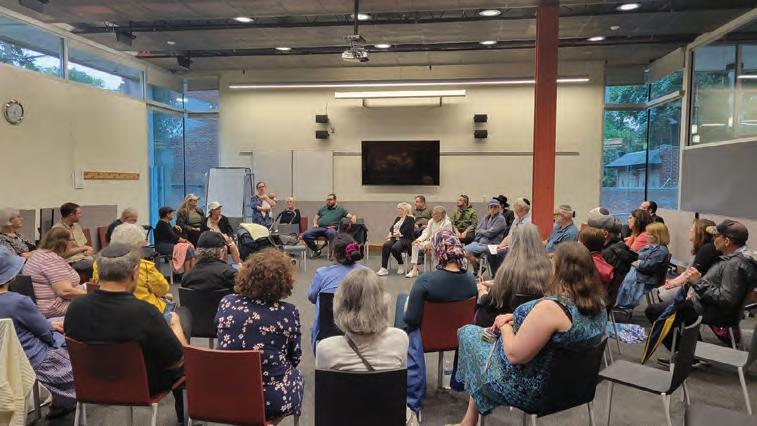
“Even in the midst of worry and concern about the [Pittsburgh synagogue shooting] trial and everything,” Siger said, “we have been able to change the conversation a little bit around from what Jews across the world are worried about, and trying to build on the notion of resilience and hope and kindness and goodness.”
For a full list of events, go to violinsofhopepittsburgh.com. Advance ticket reservations for the Violins of Hope main exhibit are available beginning Sept. 5 at violinsofhopepittsburgh. com/tickets-to-exhibit/.PJC
Toby Tabachnick can be reached at ttabachnick@pittsburghjewishchronicle.org.
want and need, and that the Orthodox community is growing, there’s a lot of teeth to that.”
No representatives of the JAA or the Federation attended the meeting.
the greater impact would be for the community.
Others remarked on the JAA’s perceived lack of transparency.
Gusky said she reached out to the organization, but that it provided no information before the meeting.
Vaad member Rabbi Shimon Silver said that meals will be packaged and sealed with certification by the Vaad, rather than served fresh, because the JAA did not want to pay for two mashgiachs (inspectors) — one working where the food is cooked and another where it is plated and served.
He suggested that may be a place to find compromise.
“If we could come up with some way of convincing them to have a second mashgiach at each dining area, at each mealtime, three times a day supervising the serving of kosher food, then that would solve that problem,” he said.
Some tension occurred when Ellen Roteman said that the JAA had already made its decision and that it wouldn’t change before being implemented. She said she believes the decision
“From my work at Federation — and I have been retired for about nine years — this has been a part of the discussion at JAA since I worked there and long before that because health care costs are skyrocketing, and the main concern is to provide health care,” she said.
The focus, Roteman said, should be on deciding what to do next.
“I think they’re willing to listen to some ideas that we might have to make this more palatable to preserve the dignity as much as we can — but this is going to happen,” Roteman said.
Many disagreed with Roteman. In fact, one attendee suggested hiring lawyers to see if there were legal options that could force the JAA to slow and, ultimately, reverse its decision.
Former Weinberg Terrace Executive Director Rena Becker said that the JAA is sensitive to criticism and that the organization’s leaders are aware of the discussions taking place in the community.
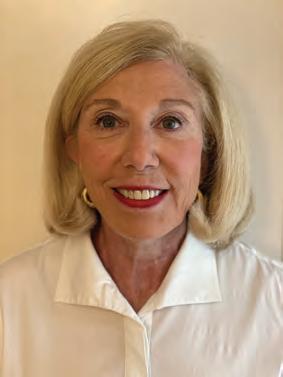
“This is not really a done deal,” she said. “If we raise our voices, if we tell them what we really
Following the meeting, Adam Hertzman, the Federation’s director of marketing, told the Chronicle that Federation’s community campaign contributions don’t constitute a large part of the JAA’s budget, but that the organization’s unrestricted funding enables the JAA to have the flexibility to meet immediate needs.
“Jewish Federation’s relationship with JAA also vastly multiplies the impact of donor dollars, such as the $17 million in HUD financing that the Federation helped to secure to renovate The New Riverview,” he said.
Federation President and CEO Jeff Finkelstein said that the organization will continue to keep its public events kosher and Vaad-supervised, but he recognized the importance of each Jewish agency and congregation making its own decisions for the people it serves.
“As Judaism believes in honoring our mothers and fathers, we believe that caring for older adults in our community is critically important,” he said. “Consequently, Jewish Federation continues to support JAA as one of our core partner agencies.”
In a prepared statement released after the meeting, the Vaad said it was saddened by the decision of the JAA to “reverse a historic commitment to upholding kashrut in its facilities,”
12 SEPTEMBER 1, 2023 PITTSBURGH JEWISH CHRONICLE PITTSBURGHJEWISHCHRONICLE.ORG
Violins Continued from page 1
p Julie Lidji addresses more than three dozen attendees at an Aug. 23 meeting about the JAA’s decision to offer non-kosher meals at Weinberg Terrace.
Photo by David Rullo
Kosher:
Please see Kosher, page 13
p Violins of Hope Courtesy of Violins of Hope Greater Pittsburgh
p Pat Siger Courtesy of Violins of Hope Greater Pittsburgh
p Sandy Rosen Courtesy of Violins of Hope Greater Pittsburgh
Headlines
Kosher:
Continued from page 12
and that it will continue its pledge to ensure fresh kosher food is available to all who desire it.
“The choice to offer non-kosher for budgetary

Carnegie:
Continued from page 5
drums, and the people all around are not happy about this,” Keenan said. “They’re not happy with what’s going on.”
When the hooded xenophobes attempted to cross a narrow bridge over Chartiers Creek, several hundred Carnegie residents began “throwing sticks and rocks and coal at them,” Keenan said. A riot ensued and “it took over the town.”
A Klansman was fatally shot. The cloaked group fled.
“It was a tactical failure for the Ku Klux Klan,” Keenan said.
Author Bill Campbell and artist Bizhan Khodabandeh, who were on last Wednesday’s panel, depicted the event in the graphic novel “The Day the Klan Came to Town.”
Campbell, a former Carnegie resident, said researching the episode made it clear that “Carnegie was more diverse in the 1920s than when I lived there in the 1970s.”
Only after leaving the area, and moving to Washington D.C., did he learn of the riot.
Campbell visited the Historical Society of Carnegie hoping for insights but was apprehensive to ask for details “because nobody talked about it,” he said. “I used to think, ‘Oh, this is a town secret and people want this to stay a town secret.’”
Historical Society members rebuffed that theory and gladly shared records from the event, including the names of Carnegie’s Klan members, he said.
Four years later, there’s nothing but gratitude for Campbell and Khodabandeh’s graphic novel, Keenan said. They took the “events of this battle here in Carnegie and incorporated the
Letters:
Who is pro-Israel: J Street or AIPAC?
concerns is not one we are at peace with nor one in which we were consulted,” the statement reads. “We expect and hope that the other agencies of the Jewish community will continue to uphold our long-standing communal commitment to kashrut, both as a statement of
imagery into the immigrant experience.”
A statement from Melissa E. Marinaro, curator of the Heinz History Center’s Italian American Program, said the panel discussion commemorated “the citizens of Carnegie, who 100 years ago stood up to the Klan in an act of resistance and drove them from the town. They were average people, many of whom labored in the industrial complex that came to define our region, seeking the promise of the American Dream.”
The names of Carnegie’s defenders, she continued, may not be preserved in books, but their actions deserve to be remembered.
Descendants of history
Former Pittsburgh Mayor Bill Peduto told the Chronicle he attended the Aug. 23 event because his grandfather was present during the riot.
“He was 30 years old back in 1923 and had been in the United States for two years,” Peduto said. “He would tell me the story about how the KKK came to tell him to leave, and how the people of Carnegie told the KKK to go home. It was a very proud moment for him, and it’s had a direct effect on my life.”
Scott Township resident Lorraine Shadle’s father was on the bridge when the clash began. He was 22 years old, she said, and “he took some kind of weapon — I don’t know if it was a bat, but something wooden — to fight the Klan.”
Shadle said her father told her about the incident decades after its occurrence.
“I was surprised to hear because it wasn’t anything that was talked about,” she said. “My father died in 1979, so I can’t go back and get clarification, but one of the most meaningful things that I do remember was his surprise to
inclusivity to all members of the Jewish community, but more importantly as a principled affirmation of the responsibility of an agency representing the Jewish community to uphold standards of Jewish law and tradition.”
The Vaad said it would be penning a letter
to the JAA asking that the implementation of its new food policy be delayed until it meets with community members to address their concerns. PJC
David Rullo can be reached at drullo@ pittsburghjewishchronicle.org.
citizens of this country.”
There are 102 white supremacist chapters in the U.S. According to the Southern Poverty Law Center. “They hope to convince white Americans that they are persecuted by ‘antiwhite’ ideas and policies, including the adoption of inclusive education in schools.” As the 2024 presidential election nears, “this movement could cause further disruption and violence.”
see who’s under the hoods.”
During the battle on the bridge, the resisters seized the veils and discovered their enemies’ identities.
B eneath the white hoods were “local established business people,” Shadle said. “My father was quite surprised, and he named names when he shared this with me.”
Susan Bryan of Kennedy Township said her grandfather was on the bridge a century ago.
“I’m very proud that he was there to help stop the Klan, but on the other hand, there are still many people that live in Carnegie whose relatives were on the other side,” she said. “Would you really want that out there, that your relatives were Klansmen? I mean it’s embarrassing, it’s painful, so I think that’s really why this wasn’t talked about a lot over the years.”
Still, history must be preserved, she said. “If you don’t stand up against what is wrong — no matter what the issue is — it’s going to continue,” Bryan said. “And that applies to today.”
‘A critical moment’
“We find ourselves in a critical moment,” Marinaro said. “White supremacists are once again attempting to intimidate and terrorize
— LETTERS —
Continued from page 11
Recently, AIPAC and J Street have featured prominently in the Chronicle. It followed AIPAC’s decision to endorse over 100 Republicans who voted to overturn election results on Jan. 6, including Ted Cruz, Scott Perry and Joe Wilson (who yelled “You lie” at Barack Obama). Then debate came closer to home, as AIPAC’s Super PAC took several million dollars from Trump-supporting mega-donors and used it to attack Summer Lee in her primary race, and then to support her MAGA opponent.
And it followed J Street’s continued support for Lee. Some in the community strongly oppose her position that better oversight measures are required to prevent the Israeli government from diverting U.S. security aid toward supporting settlement construction and endless occupation. Lee is joined by others in her views. Yossi Beilin (a former Israeli justice minister), Martin Indyk and Daniel Kurtzer (former American ambassadors to Israel), Jacob Siegel and Liel Leibovitz (editors at Tablet) and Aaron David Miller (a former State Department official) have taken stronger positions on military aid than Lee. I expect AIPAC thinks Beilin, Kurtzer, Indyk and others are insufficiently “pro-Israel.”
Who is pro-Israel, AIPAC or J Street? Let’s stop labeling and examine their positions. At its core, we are debating what it really means to be “pro-Israel” and who best represents our community’s views. For myself, living two blocks from the Tree of Life synagogue, I cannot fathom AIPAC’s standing ovation for Donald Trump and the campaign contributions it’s given to his allies through 2022. Many believe Trump fomented the antisemitic beliefs that fueled the despicable shooting on Oct. 27, 2018. There are no excuses for supporting political actors in the U.S. or Israel in an anti-democratic direction, breeding intolerance, bigotry and hate.
In Israel, intolerance and anti-democratic measures are ascendant, but AIPAC continues to unconditionally support Israel, no matter her behavior (be it by undermining the judiciary or building settlements). This puts them at odds with the overwhelming majority of
Four days after the 1923 riot, the Klan published its weekly newsletter. Editors recounted the event and excerpted the work of Pittsburgh-based journalists “so that the merits of the matter may be judged on the testimony of newspaper writers who, if they are biased, are certainly not biased in favor of the Knights of the Ku Klux Klan.” Pages earlier, the Klan pointed to Jews, Italians, Armenians, Greeks, Japanese, Chinese and Finns, when calling immigration “one of the greatest perils confronting America.”
“Paupers, diseased and criminals predominate among those who land upon American soil,” the Grand Dragon of the Realm of South Carolina wrote. “Any alien who is not willing to measure up to the standard of true Americanism should be deported. We have no room in this country for any individual or element opposed to America, and who are not willing to give their undivided allegiance to our country, its institutions, its language and its flag.”
When asked why it’s essential to document stories — even those that people wish to forget — Campbell said, “History is important because we never escape it. We are a product of it. We are constantly living it.” PJC
Adam Reinherz can be reached at areinherz@pittsburghjewishchronicle.org.
American Jews and AIPAC’s former top lobbyist, Douglas Bloomfield, who last week wrote in the Jerusalem Post, “AIPAC has plunged into partisanship with a hard turn to the Right, embracing Evangelical Christians, hardline conservative Republicans, and election deniers whose views on everything but Israel were largely anathema to the mainstream Jewish community.”
Israel’s pro-democracy protesters made their position clear in an op-ed in Haaretz, accusing AIPAC leadership of “siding with the enemies of democracy” and “steering the organization away from its original pro-Israel mission, and toward an ultra-right-wing organization.”
In contrast, J Street believes we can champion Israel’s future, the U.S.-Israel relationship and U.S. security aid. We can both criticize the Israeli government when we disagree and stand up for justice, democracy, equality and peace (values enshrined in Israel’s Declaration of Independence). J Street’s view aligns far more closely with the overwhelming majority in our community — no matter the misstatements, distortions and smears thrown its way.
Mark Fichman Chair, J Street Pittsburgh
We invite you to submit letters for publication. Letters must include name, address and daytime phone number; addresses and phone numbers will not be published. Letters may not exceed 500 words and may be edited for length and clarity; they cannot be returned. Mail or email letters to:
Letters to the editor via email: letters@pittsburghjewishchronicle.org
Address: Pittsburgh Jewish Chronicle 5915 Beacon St., 5th Flr., Pittsburgh, PA 15217
Website address: pittsburghjewishchronicle.org/letters-to-the-editor
Correction
In “Indifference is a moral failing: Be different,” the Aug. 25 dvar Torah written by Rabbi Aaron Bisno, the last two lines of the piece were inadvertently omitted. The complete and correct version can be found online at pittsburghjewishchronicle.org. The Chronicle regrets the error. PJC
PITTSBURGHJEWISHCHRONICLE.ORG PITTSBURGH JEWISH CHRONICLE SEPTEMBER 1, 2023 13
p Panelists recount the events of Aug. 25, 1923.
Photo by Adam Reinherz
Life & Culture
Talking turkey — and gyros
By Jessica Grann | Special to the Chronicle
Idon’t know about you, but we get some really random food cravings in our home — which lead to lots of failures and a few surprising wins in the kitchen.
Until recently, I didn’t understand the appeal of ground turkey; I found it dry and flavorless. After a lot of experimenting, I realized that ground turkey just needs lots of seasoning and a little bit of extra oil.
I planned to make small Greek turkey burgers that would fit into a pita, but my husband suggested flattening the meat and cutting it into strips, then pan-frying it to recreate the kind of squared-off gyro meat that we loved at another time in our lives. We were surprised that the turkey came out so well, and we’ve been enjoying it as a fun and healthy weeknight meal.

If you prefer, you can use this recipe to make small Greek turkey burgers.

Turkey gyros (or small burgers)
Serves 3-4; can be doubled
Ingredients:
1 pound ground turkey
3 cloves minced garlic
2 tablespoons olive oil
3 tablespoons matzah meal or bread crumbs
1½ teaspoons kosher salt
3 teaspoons Greek seasoning
Oil for pan frying
Salt and pepper to taste
Pitas for serving, with sliced tomato, onions, lettuce
Parve tzatziki or garlic herb mayo
Place the ground turkey into a large mixing bowl with the garlic, olive oil,
NOW HIRING ACCOUNT EXECUTIVE
The Pittsburgh Jewish Chronicle is seeking a
matzah meal and seasonings. If you don’t have Greek seasoning, you can search online to see how to make it with spices in your pantry, like oregano, dill and parsley. Some store-bought seasoning blends have added salt and pepper; keep this in mind and omit the kosher salt from the mixture if that’s the case.
Mix the turkey with the seasonings gently — ground turkey gets kind of pasty when it’s overmixed.
Allow the mixture to sit in the refrigerator for at least an hour so the spices settle in and the matzah meal softens.
This mixture can be formed into small burgers, or you can try the flattened version as follows.
of oil to a frying pan. If using olive oil, keep an eye on the heat so the oil doesn’t burn. Olive oil works great over medium heat but starts to smoke and burn if the heat gets higher. You can also use avocado oil or another neutral vegetable oil. Allow the oil to heat for a few minutes before adding the turkey in batches. Whether you made small burgers (less than 4 inches in diameter) or the thinner sheet pan version, you should be able to get about 4 pieces at a time into your pan.
Use a spatula to lift the raw meat pieces and place them into the hot oil. Pan fry for about 4 minutes on the first side. The color will change to white when it’s cooked. Be sure that the turkey is cooked at least halfway up the side of the piece before flipping it over to cook for a few more minutes. Both sides should have a nice golden-brown color. Per food safety, check the internal temperature with a digital thermometer — it should be at least 165 F.
Taste the first piece to see if extra salt or spices are needed and, if they are, sprinkle them onto the pieces that have not yet been cooked.
The meat can be served in pitas or on top of a big salad.
and
You will have myriad opportunities to earn an income that increases with every sale you make.
GOALS AND EXPECTATIONS
• Fiercely competitive
• Excellent listening & communication skills
• Achieve monthly, quarterly and annual sales goals
• Consistently maintaining high level of activity in the field (cold calls, prospecting, custom needs assessment, proposals, closing sales)
• Exhibits confidence and professionalism in presentation skills
• Ability to set next steps and achieve defined goals with prospects and expectations for closing business
• Strong interpersonal and organizational skills paramount to success
• Comfortable with technology and understanding of digital and social media
REQUIREMENTS
• Print, media, digital and/or event experience preferred
• 2-3 years direct outside sales experience
• Bachelor’s Degree from 4-year college or university
• Strong understanding of the digital ecosystem
• Organized, multi-tasker who thrives in a fast-paced environment
• Incredible business acumen with an entrepreneurial spirit to own a territory, business and clients
• Strong work ethic is a must
• Positive attitude and team players only please
We value a culture of collaboration and professional and personal growth for all team members.
If you feel strongly that you could contribute to our team, and thrive in a fun, fast-paced atmosphere, we encourage you to submit your cover letter and resume to jobs@pittsburghjewishchronicle.org. Please include “Account Executive” in the subject line. No phone calls.
The Pittsburgh Jewish Chronicle is an Equal Opportunity Employer.
Because the turkey mixture is slightly sticky, place a piece of parchment paper over a sheet pan and hand-pat the turkey mixture onto the pan as thinly as possible, about a half-inch thick. Cover the pan with plastic wrap and refrigerate it for an hour before cooking. This helps the turkey firm up a bit and makes it easier to cut it into pieces before cooking.
Using a sharp knife, cut the turkey into rectangle-shaped pieces.
Over medium heat, add about a half-inch
To make a parve sauce for the meal: Mix about ¾ cup of mayonnaise, pareve yogurt or pareve sour cream to 1 clove of minced garlic and 2 tablespoons of lemon juice. Add salt and herbs to taste. Dried herbs work well in this sauce, but you can choose fresh dill, oregano and mint if you have it on hand. Start with a halfteaspoon of each and add more to your liking.
If you’re going for the tzatziki vibe, add diced cucumber into the mix. Thinly sliced onion, tomato and romaine lettuce complement the pita.
This “faux gyro” makes a tasty salad plate if you’re avoiding bread. It also tastes wonderful with a Greek vinaigrette.
Enjoy and bless your hands! PJC
Jessica Grann is a home chef living in Pittsburgh.
14 SEPTEMBER 1, 2023 PITTSBURGH JEWISH CHRONICLE PITTSBURGHJEWISHCHRONICLE.ORG
p Gyro meat made from ground turkey
Photo by Jessica Grann
p Turkey gyro
Photo by Jessica Grann
dynamic, creative
innovative sales professional with proven success.
— FOOD —

PITTSBURGHJEWISHCHRONICLE.ORG PITTSBURGH JEWISH CHRONICLE SEPTEMBER 1, 2023 15
Life & Culture
‘You Are So Not Invited to My Bat Mitzvah’ is an endearing Sandler family affair
argument. “Being Jewish!”
By Amy Spiro | The Times of Israel
This might be Adam Sandler’s most Jewish movie ever — and that’s saying something.
From “Uncut Gems” to “The Meyerowitz Stories,” “Sandy Wexler” and “You Don’t Mess with the Zohan,” Sandler has long showcased Jewish characters, storylines and themes.
But none of those quite compare to “You Are So Not Invited to My Bat Mitzvah,” his new Netflix comedy, directed by Sammi Cohen, which hit the streaming platform last week.

Adapted from a book by the same name, the movie is a sweet, very literal comingof-age tale that doesn’t shy away from depicting Jewish rituals and embracing the poignant and quirky elements of Jewish culture, yet remains accessible to wider audiences.
Sandler, who stars in and produces the film, plays family patriarch Danny Friedman, dad to two teen girls, Stacy and Ronnie.
The longtime actor and funnyman has managed to both make a movie and spend time with his family, as his daughters Sunny and Sadie play the central roles. And while his film wife is played by Idina Menzel — reprising their “Uncut Gems” coupledom — Sandler’s real-life wife, Jackie, also appears on screen as the mother of Stacy’s best friend-turnedfoe Lydia Rodriguez Katz (Samantha Lorraine).
The movie centers around Stacy’s upcoming bat mitzvah and opens with a stirring shot of her standing in a synagogue and chanting from her Torah portion. But it’s an uphill battle to get there, as the
preteen has to overcome parental objections to her party demands (a performance by Dua Lipa on a yacht), ambivalence toward her “mitzvah project” and a betrayal by her best friend.
Judaism oozes from every single scene of “You Are So Not Invited” in both the overt jokes and moments and the ones that are
more of a wink to Jewish audiences, as Stacy cries into a bowl of matzah ball soup, is pelted by candy while standing on the bimah (synagogue dais) or is pulled by her crush for a makeout session behind the curtain of the Torah ark.
“You know what the theme was [for my bar mitzvah]?” shouts Danny during one
Sandler’s brand of humor (“That’s why we fought the Nazis? So you could have a mojito bar?”) shines through often — including in his choice to bring back his frequent collaborator, Israeli actor Ido Mosseri, to play sleazy, in-demand bat mitzvah DJ Schmuley (“make some noise, mishpucha!”).
But the film is also an endearing homage to the struggles of an American Jewish teenager, bouncing between her parents’ expectations, the social pressures of school, the growing pains of adolescence and her realization that everything she thought was critical might turn out to be not that important after all.
In a blink-and-you-miss-it exchange laced with meaning — and a brief appearance by the legendary Jackie Hoffman — the film’s elders note how just a generation or two ago, bat mitzvah celebrations for young women were far from the norm.
At the same time, the movie pokes fun at the excesses often surrounding today’s festivities, from the extravagant parties to a reference to one classmate whose “mitzvah project is passing out sunscreen at Coachella.”
For every Friedman, Levy and Goldfarb in the movie, there’s a Chang-Cohen and Rodriguez-Katz, and alongside the sports-themed bar mitzvah there’s a glitzy “they mitzvah,” reflecting the way Judaism continues to play a role as the modern world evolves and family structures may change.

Even amid all the teenage angst, it’s refreshing to see Hebrew school depicted as a meaningful institution the kids enjoy attending, rather than the butt of jokes it has served as for decades. And the resounding onscreen rendition of “Shabbat shalom, hey!” will certainly echo for many, if not most, Jewish viewers.
SNL cast member Sarah Sherman steals every scene she’s in as Rabbi Rebecca, the mullet-sporting, advice-spouting, musical spiritual leader, with lines such as “and that’s the way the hamantaschen crumbles, sis.”
And watching Sunny practice chanting her Torah portion in her room along with a recording of the singsong chanting — without the need for any explanation for non-Jewish viewers — feels like meaningful onscreen representation for generations of Jews.
Sandler is a comedic powerhouse, even when playing a barely stylized version of himself as a suburban dad who cracks embarrassing jokes but cares deeply about his daughters and his family.
Adam Sandler may bring his name and star power to “You Are So Not Invited to My Bat Mitzvah.” But Sunny Sandler undoubtedly steals the show as the relatable, angst-ridden, yet ever-evolving Stacey Friedman.
She may be the ultimate nepo baby, but I’m certain we’ll be seeing more of Sunny in the future. PJC
16 SEPTEMBER 1, 2023 PITTSBURGH JEWISH CHRONICLE PITTSBURGHJEWISHCHRONICLE.ORG
p Idina Menzel and Adam Sandler in a scene from the Netflix film “You Are So Not Invited to My Bat Mitzvah”
Photo by Scott Yamano/Netflix, via The Times of Israel
p Samantha Lorraine, Adam Sandler, Sunny Sandler and Sadie Sandler in a scene from the Netflix film “You Are So Not Invited To My Bat Mitzvah” Image courtesy of Netflix via The Times of Israel
— FILM —
Adapted from a book by the same name, the movie is a sweet, very literal coming-of-age tale that doesn’t shy away from depicting Jewish rituals and embracing the poignant and quirky elements of Jewish culture, yet remains accessible to wider audiences.
www.pittsburghjewishchronicle.org

PITTSBURGHJEWISHCHRONICLE.ORG PITTSBURGH JEWISH CHRONICLE SEPTEMBER 1, 2023 17
B’nei Mitzvah
Isaac Ethan Drucker, son of Steven and Casey Drucker, will become a bar mitzvah at Adat Shalom during Shabbat morning services on Saturday, Sept. 2, 2023. His proud grandparents are John and Sherry Greenberg and Dennis and Vivian Drucker. Isaac enjoys playing sports, especially AAU basketball and club soccer with the Riverhounds Development Academy. He also attends Emma Kaufmann
will become a bat mitzvah on Saturday, Sept. 2, at Rodef Shalom Congregation, Parashat Ki Tavo. Maci is an eighth grader at Pittsburgh Greenfield. She enjoys dancing, musical theater and listening to music. Being such a big animal lover, Maci is raising funds and awareness for Orphans of the Storm Animal Shelter in Kittanning, Pennsylvania, for her service project. Maci is the daughter of Joshua and Yael Eads and the granddaughter of Kathy Lobelsohn and Roger and Cheryl Eads.
, daughter of Pam and Alan Peisakoff, will be called to the Torah as a bat mitzvah on Saturday, Sept. 2, 2023, at Temple Ohav Shalom in the North Hills. Mara is the granddaughter of Phyllis and the late Gil Peisakoff, and Paul and Naomi Herman. Mara will be an eighth-grade student at Avonworth Middle School this fall. Mara spends her time playing flute in the school marching band and playing catcher for her fast pitch softball team. Mara loves her time at Emma Kaufmann Camp and Bethany Beach in


Gratitude cannot be delegated


Anyone with a little synagogue experience knows the phrase “repetition of the Amidah.” For those unable to recite the special Amidah prayer on their own, the prayer leader, having whispered it himself like most of the congregation, then recites it out loud, pausing after each of the 19 blessings, giving everyone a chance to respond “Amen.”

And, just by saying “Amen,” even the least educated and most ignorant congregant gets credit for the blessings of the Amidah.



But then you have Modim. Upon arriving at the blessing whose theme is expressing gratitude to G-d, the response is far more than simply, “Amen.” In fact, an entire paragraph, called Modim Drabanan, is laid out for every congregant to recite.







This week’s Parshah speaks of the ancient ritual of Bikkurim, where a Jewish farmer would travel all the way to Jerusalem, laden with gifts and tributes of the first fruits of his fields. He would make the often lengthy and arduous journey just to be able to stand before G-d and say, “thank you.”
Only the farmer knows how hard he worked to clear, burrow and plow the earth. Only he knows the endless hours of sweat and tears that he carefully sowed, watered, watched over and cultivated his land. Only he knows how badly he needed the crop to succeed, and how intensely he needed the fruits to grow; how his family’s survival depended on it. Only he knows how helpless he felt when he knew he had done everything he could and it was now in G-d’s hands, utterly and completely. Only he knows the emotional, whispered prayers he poured out, begging G-d to bless his labor with success, to allow him to reap with joy.
And only he knows the incredible sense of relief and happiness he is now enjoying as he beholds the abundance of healthy produce, the long-awaited, beautiful fruits of his labor.
Why? Why doesn’t “Amen” suffice for this blessing, and why the lengthy response?


Because while one may appoint a messenger to say many things, “thank you” must be said personally. Gratitude is not something that can be delegated — it must be expressed from the heart.
Like its mirror quality of desperation, gratitude leaves one feeling, ironically, alone. Just like a person experiencing desperation feels that “no one knows what I’m going through,” a person who is deeply grateful also feels like they alone know the depth of their gratitude, how desperate they were for what they needed and how grandly thankful they feel now that it has been given to them.
So, it is insufficient to hear someone say, “thank you,” and reply, “Amen!” If you feel it, declare it! If something has happened in life which makes your knees buckle with relief and gratitude to G-d, you must articulate those feelings. The deliverance was powerful and came down to Earth, and the gratitude must be towering and reach up to Heaven.
So, how could anyone say “thank you” for him? How could he not make the trip and express his thankfulness as only he can?
Each of us knows where we fit into this picture. We’ve all needed, wanted so very badly, felt desperate for one matter or another to work out. Be it business or health of family, only we know the intensity of our need and the intensity of our thanks.
And so only we can properly express it. And express it we must. Verbally, joyfully, sincerely. There is nothing to be ashamed of. And not only with the Modim or with the morning Modeh Ani prayers. At Shabbat dinners, at lunch with friends or whenever the opportunity presents itself, it’s always the right time to look around the room and look around your life and exclaim, “Baruch Hashem! Thank G-d.” Shabbat Shalom! PJC
Rabbi Moishe Mayir Vogel is executive director of The Aleph Institute – North East Region. This column is a service of the Vaad Harabanim of Greater Pittsburgh.




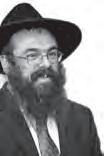
18 SEPTEMBER 1, 2023 PITTSBURGH JEWISH CHRONICLE PITTSBURGHJEWISHCHRONICLE.ORG Torah
Celebrations
Gratitude is not something that can be delegated — it must be expressed from the heart.
Director of JFCS Clinical Services, for being awarded the Jewish Federation’s 2023 Doris & Leonard H. Rudolph Jewish Communal Professional Award! Thank you for everything you do for the community! Jeff Weinberg, M.ED, M.PH, NHA National Certified Health Care Advocate, author of Emperor Needs New Clothes: Or Why The Caring Disappeared from Health Care 412-952-6944 | jeff@caregiverchampionadvocate.com
Rabbi Moishe Mayir Vogel Parshat Ki Tavo Deuteronomy 26:1–29:8
Fri 8 1-7 | Sat 9 10-7 | Sun 10 10-5 Fine Arts and Crafts Festival September 8 • 9 • 10 | Mellon Park | Fifth & Shady craftsmensguild.org A FAIR PARK in the www.marks-law.com 412-421-8944 4231 Murray Avenue Pittsburgh, PA 15217 helping you plan for what matters the most Michael H. Marks, Esq. michael@marks-law.com member, national academy of elder law attorneys With the increasing costs of long-term care, having the help of a legal professional when planning for your family’s future can help you make better decisions that can result in keeping more of your money. We help families understand the strategies, the benefits, and risks involved with elder law, disability and estate planning. WATCH THIS SPACE FOR EXCITING NEWSABOUT MARKS ELDER LAW
Obituaries
BARASCH: Shirley Ruth Schiffman Barasch, on Saturday, Aug. 26, 2023. Beloved wife of the late Ronald Barasch. Loving mother of Larry (Anne) Barasch, Karen Staif and Miriam (Matthew) Fleming. Sister of the late Barbara (late Judah) Samet. Grandmother of Rachael, Michael (Denise), David, Yossi (Maya), Danielle, Emily, Shani, Katie, Sarah and Becca. Great-grandmother of Benjamin, Alexander and William. Shirley was a revered professor, musician, composer, director, poet, author and voice coach to generations. Services were held at Ralph Schugar Chapel, Inc. Interment Beth Shalom Cemetery. Contributions may be made to Point Park University, Office of University Advancement, 201 Wood St., Pittsburgh, PA 15222. schugar.com
BERKOVITZ: Jack Berkovitz died peacefully on Aug. 21, 2023. Born in Pittsburgh in 1930, he attended Schenley High School until he was 15, but, in 1945, his family moved to Los Angeles. He graduated from Roosevelt High School in Los Angeles in 1947. At the age of 19, Jack returned to Pittsburgh to visit relatives and friends and met Phyllis Goldman. After knowing each other for only three weeks, they married and remained married for almost 71 years, until Phyllis’ death in 2021. Jack became a jeweler and business owner and did not retire until the age of 91. Jack had many passionate interests. He was a gifted amateur musician, playing the clarinet and, in later years, the recorder. He loved many genres of music but especially classical music, attending concerts, listening to recordings, and reading about composers and musicians. He became an avid skier and bicyclist and organized long-distance bike trips that attracted significant numbers of other local cyclists. He was fascinated by the technological advances that he witnessed during his lifetime, learning to use technology personally and reading about tech companies. He surprised his family by his awareness of several cutting-edge innovations long before they became popular, including YouTube and Google. He was an autodidact, who also loved history, politics and sports. Jack was a deeply caring person, who felt great pleasure in helping those in need. His focus was on individuals, whom he would help for long periods of time in whatever way he could. He was a jokester, with a wicked sense of humor, which was outrageous at times, and he had a playful nature, which found expression in his interactions with children and dogs. He was fearless in teaching young people to drive and gave many their first driving lessons. Jack was a highly independent and unique individual who was loved dearly by his family and friends and will be missed greatly. In addition to his wife, Jack was predeceased by his infant son Lee and his brother Martin. Jack is survived by his daughter Darlene Berkovitz (Robert Zinn); his grandchildren Andrew Zinn and Eleanor Zinn; his brother-in-law Murray Goldman (Marg Goldman); his nieces Aida Berkovitz, Trista Berkovitz (Stephen Pegors), Lisa Van Nostrand (Thomas Van Nostrand), Amy Dyson (Peter Dyson); beloved great-nieces and nephew, cousins and devoted friends. The burial was private, and a memorial celebration of his life will be held on Oct. 1, 2023, at 11 a.m. at the Jewish Community Center in Squirrel Hill. In lieu of flowers, donations can be made to the Pittsburgh Symphony Orchestra, 600 Penn Ave., Pittsburgh, PA 15222. Arrangements entrusted to Ralph Schugar Chapel, Inc., family owned and operated. schugar.com
BIALOSKY: David Harris Bialosky, age 81, of Pittsburgh, passed away Thursday, Aug. 10, 2023, in Rochester, New York, from injuries sustained in a bicycling accident. Dave was born July 20, 1942, in Portsmouth, Ohio, to Jerome and Carmel (Handelman) Bialosky. He gradu ated from Homestead High School in 1960 and went on to obtain a Bachelor of Science degree in chem ical engineering from Carnegie Tech (Mellon) in 1964 and a Master of Science degree in chemical engi neering from the Pennsylvania State University in 1966. Dave was attending a fraternity mixer while visiting his sister, Judi, at Penn State in 1963 when a young lady caught his eye. He strategically positioned himself and when opportunity struck (over hearing her say she was from Pittsburgh) interjected himself into the conversation. The commonality of the shared hometown led to an extended conversation between Dave and Jacqueline Bennett. Dave’s sister had intended to set him up with an acquaintance during his visit; however, Dave informed her the next day she should cancel his other date. Dave married Jacqueline (Bennett) Bialosky in 1966 and they shared 57 years as husband and wife. Dave and Jackie started their life together in Cleveland, Ohio, where he worked as a chemical engineer for Standard Oil of Ohio. After a year in Cleveland, he became a chem ical engineer for Calgon Corporation in Pittsburgh, where he worked 33 years before retiring in 2000. Dave was a wonderful husband and a caring father and grandfather. He and Jackie had two children and four grandchildren. Dave loved his children and priori tized involvement in their lives. He was an assistant coach for little league teams and served in leadership roles in their youth organizations. He engaged in nightly family dinners, games of catch in the backyard and yearly family vacations. Dave carried this passion over to his grandchildren with whom he loved spending time and was instrumental in teaching them to tie their shoes, ride a bike, drive and complete their homework when their questions exceeded their parents’ knowledge or patience. Dave was an avid bicyclist. For years he rode most days regardless of the weather conditions and true to his engineering background, he meticulously kept a daily log of
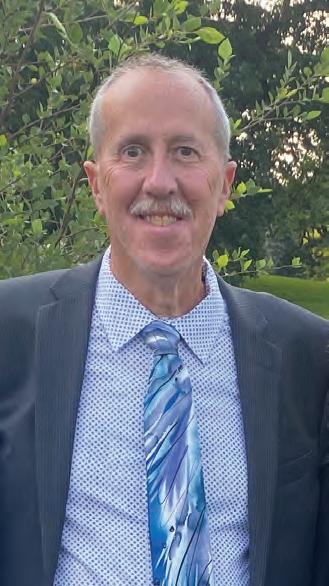


his rides including the date, temperature and humidity, distance and time. Dave continued to ride his bicycle a minimum of 20 miles most days until his death. He was a recognizable figure in the community among friends and neighbors who frequently commented on seeing him on his bicycle all over the South Hills of Pittsburgh. Dave was an active member of the Western Pennsylvania Bicycle Club, recognized with a lifetime achievement award for his service as membership chair, club secretary and event volunteer. Dave is survived by his wife of 57 years, Jackie; son Joel (Laurie) Bialosky of Gainesville, Florida; daughter Ellen (Tim) Drook of Pittsburgh; grandchildren Justin and Walter Bialosky, and Cosette and Cara Drook; and brother Don (Betsy) Bialosky of Pittsburgh. Dave was preceded in death by his parents, Jerome and Carmel Bialosky, and sister Judith Weisberg. A private service will be held to celebrate Dave’s life. In lieu of flowers, the family asks you to consider memorial donations to the Trail Volunteer Fund of the Pittsburgh Foundation Attn: Arlene Vukas, 5 PPG Place, Suite 250, Pittsburgh PA 15222 (they-working.org/helpus/) or the Harbor House of Rochester, 89 Rossiter Road, Rochester, NY 14620 (harborhouseofrochester.org/ make-a-donation/).
BLATT: Gertrude “Goldie” Blatt, age 104, on Tuesday, Aug. 22, 2023, just shy of her 105th birthday. Beloved wife of the late Benjamin Blatt. Loving mother of Shirley Pearlstein and the late Sanford “Sandy” Blatt. Sister of the late Edward and Sydney Tillman. Sister-in-law of Sylvia Tillman and the late Sherma Tillman. Cherished Boby of Brian (Katie) Pearlstein, Marc (Kari) Pearlstein and Lisa (Jeff) Dennen. Great-grandmother of Noah, Hannah, Ava, Emma, Ryan and Lauren. Also survived by many loving nieces, nephews, great-nieces and -nephews, and great-great-nieces and -nephews. Goldie loved to play golf, playing well into her 80s. She was an avid bridge player and played until her death. She loved her weekly trip to the beauty shop, getting dressed up and going out with her friends, and hosting parties in Florida with her friends. But her greatest joy was her family, and her home was the gathering place for everyone. Graveside services and interment were held at Shaare Torah Cemetery. Contributions in Goldie’s memory may be made to a charity of your choice. Arrangements entrusted to Ralph Schugar Chapel, Inc. family owned and operated. schugar.com
BRAND: Shirley Kay Brand, on Friday, Aug. 25, 2023. Beloved wife of the late William Brand. Loving mother of Michelle (Gregory) Winter, Jeffrey (Lisa) Brand and Steven Brand. Sister of Iris (late Morton) Goldstein, late Allen Hoffman and late Marion Hoffman. Grandma of Jennifer, Jessica, Danielle and Jacob. Shirley cherished her time with her grandchildren including holiday meals, vacations, regular home visits and attending various activities. Shirley was an active member of BOLD (Blind Outdoor Leisure Development) and a past president of the organization. Services were held at Ralph Schugar Chapel, Inc. Interment Homewood Cemetery. In lieu of flowers, contributions may be made to Foundation Fighting Blindness, P.O. Box 45740, Baltimore, MD 21297 or a charity of donor’s choice. schugar.com
DAVIS: Fred Davis, on Monday, Aug. 21, 2023. Beloved husband of Barb Davis, the love of his life and childhood sweetheart for 48 years. Loving and proud father of Stacy Davis, Lindsey (Corey) Manton and Jamie (Matt) Miller. Son of the late David and Margaret Davis. Brother of Marsha (Rick) Bolnick, Ron (Elana) Davis and the late Robert Davis. The world’s best and most amazing Pap Pap of Derek and Brody Manton, and Jason Miller. Also survived by nieces, nephews and very devoted friends. Fred was a lifelong resident of Squirrel Hill and an avid fan of the Steelers, Penguins, Pitt, and a die-hard Pirates fan who had been employed for 52 years at the ballparks. He was a business owner for 34 years and a devoted member of Tree of Life Congregation. Services were held at Ralph Schugar Chapel, Inc. Interment Homewood Cemetery. Contributions may be made to Tree of Life Congregation, P.O. Box 5273, Pittsburgh, PA 15206. schugar.com
Roslyn M. Hurwitz, on Friday, Aug. 25, 2023. Beloved wife of the late Melvin H. Hurwitz. Daughter of the late Saul and Marjorie Leff. Sister of the late Ronna Leff Lapidus and the late Barry M. Leff. Roslyn was the devoted mother of Francine and Ethan Royce and Lee and Beverly Hurwitz; the adored Nana of Sam and Mia Royce and Alexis, Amanda and Ashley Hurwitz; and the loving partner of Jack L. Bergstein. Roslyn was the third generation of her family’s business BL Cream Company & Alber and Leff Foods Company, where she proudly served as vice president for over 30 years. Services were held at Ralph Schugar Chapel, Inc. Interment B’Nai Israel Cemetery. Contributions in Roslyn’s memory may be made to Adat Shalom adatshalompgh.org/give/. schugar.com

Please see Obituaries, page 20

PITTSBURGHJEWISHCHRONICLE.ORG PITTSBURGH JEWISH CHRONICLE SEPTEMBER 1, 2023 19
Jewish Association on Aging gratefully acknowledges contributions from the following: A gift from ... In memory of...
Anonymous



Karen & Allison Broudy
David & Judith Clovsky
Edward M Goldston
Mary Jatlow
Susan Neuwirth Johnson

Carl Krasik
Harold & Cindy Lebenson
Lisa D Pollack
Linda & Jeffrey Reisner & Family
Richard, Mindy, & Logan Stadler
Bill & Amy Snider
Mitchell & Elly Toig
Edris C Weis
Obituaries


Obituaries:

Joseph Gelman


Sylvia Lebenson
William Phillip Clovsky
Marilyn Neuwirth Herron
Dora Podolney Krasik
Sylvia Lebenson
.Charlotte Levy Pollack
Norma Davis Brodell
Morris Saxen
.Howard Snider
.Pearl Beck Levy
Contact the Development department at 412-586-2690 or development@jaapgh.org for more information. THIS WEEK’S YAHRZEITS —
Sunday September 3: Regina Berg, Ethel Borovetz, Celia Grudzinsky Catz, Joseph Gelman, Lillian Ohringer Girson, Louis Goldberg, Barbara Goldstein, Louis Hershenson, Herbert Isaacs, Leon Kweller, Leon Lappin, Pearl Beck Levy, Norma Lewis, Essie Jacobs Marcus, Martin S Morrow, William Richman, Rose Leib Rothman, Mollie Steinman, Selma Volkin, Joseph Weitzman, Belle Strauss Wilder
Monday September 4: Justine Becker, Pessie Esman, Nathan Glantz, Leah A Gluck, Toby Goldberg, Martha Hirsch Green, Bess Z Kaufmann, Morris Kessler, Leah Tobias Levy, Rose Mikulitzky, William Miller, David Pecarsky, Goldie Rubin, Lena Ruttenberg, Estelle Rae Sable, Martin S Taxay, M .D , Joseph N
Tuesday September 5: Minnie E Aberman, Emanuel Hyman Bennett, Isadore Brown, Ted Brown, Norma Cohen Dobrushin, Marilyn B Neuwirth Herron, Julia Kitman, Fannie Liebman, Lillian E Friedman Pachtman, Sadie Rebecca Ruttenberg, Benjamin C Simon, Meir A Weiner, Meyer Wolk, Irving S Zamore
Wednesday September 6: Sam Carson, Elizabeth Marine Chaiken, Esther F Cohen, Sadie Friedland, Leonard H Goldberg, Samuel Henry Harris, Ella Herman, Henry H Katz, Anna C Kenner, Samuel G Osgood, Benjamin L Schulman, M .D , Yetta B Sirota, Ruth Soffer, Bennie Star, Lawrence Swartz, Harry H Wyner, Oliver Zimmer
Thursday September 7: Isadore Ackerman, Sadye G Adler, Anna Amdur, Milton Saul Baseman, Isadore Cohen, Arnold Deutelbaum, Harold Glick, Joseph Klein, Sylvia Lebenson, William Leibovitz, Isadore Liberman, Pearl Love, Lena Mandelblatt, Lena Morantz, Bessie Wilkoff Osgood, Dora Podolney Krasik, Alick Portnoy, Sarah Rosen, Albert Ross, Morris Schachter, Elsie Skigen, Anne Skirboll, Hyman Stearns, Louis Herman Weiss
Friday September 8: William Beck, Joseph Cohen, Helen Rosen Cowen, Rebecca Eger, Peter Glick, Rose Goldenson, Lucile F Hanauer, Fannie Zweig Lando, Leonora Lichtenstul, Lila P Margolis, Lillian Goldman Mason, Sam Perilman, Maurice Perr, Bessie Geber Rosenfield, Allan Schwartz, Morris Sigman, Jacob Silberman, Bennie Turk, Max Turk, Sally Weintraub Eichner
Saturday September 9: Julius Altshuler, William V Conn, M .D , Adelyne Crumb, Julius Davis, June Y Enelow, Fay Ruth Frank, Rebecca Green, Stanley Hohenstein, Charles M Horovitz, Sarah Basia Horwitz, Max I Levinson, Mary Ethel Miller, Mark J Mundel, Charles S Perlman, Adolf Siegel, Norman Sife, Sarah B Simon, Herman Wolfe
PIRCHESKY: Eric S. Pirchesky passed quietly on Aug. 27, 2023, at his home and surrounded by family. He is survived by his loving brothers, Michael Pierce (Anna) and Melvin Pirchesky (Sharon); sister, Hope Bassichis; son, Joel Pirchesky (Baila); daughters Lori Yanoff (Scott) and Jill Pirchesky; four grandchildren; and numerous cousins, nieces and nephews, all of whom had a special place in his heart. Eric was raised in Monongahela, Pennsylvania, in the middle of a scrap yard between the railroad tracks and the Monongahela River. The yard was started by his beloved father, Robert Pirchesky, and his adored mother, Anne (Cousin) Pirchesky. From these humble beginnings, Eric worked very hard with one of his first major accomplishments becoming an Eagle Scout. This was very special to him as his brothers also became Eagle Scouts, making him, his brothers and his father one of the few families in the United States with four Eagle Scouts. Later, his son, Joel, and grandson, Sage, became Eagle Scouts, making a total of six Eagle Scouts in one family. Following high school graduation from Monongahela High School, he joined the family business. After learning the scrap business, he became president and built a strong company, got married, grew a special family and lived successfully in Charleroi, Pennsylvania. He was generous and always did his best to take care of his family as long as he lived. He and his parents sold their business in 1991 and retired. In retirement, he enjoyed his time with his family. His last years were spent with, and taken care of by, his loving sister, Hope, in Pittsburgh, the city he always enjoyed. He will be missed and remembered for his continually expressed kindness and his humor. Funeral services were held at 1 p.m. on Tuesday, Aug. 29 at the Tree of Life Memorial Park, 2062 Reis Run Road, Franklin Park, PA 15237. Shiva will be observed from 4-8 p.m. with services at 7 p.m. Jill Pirchesky hosted shiva on Tuesday and Wednesday, Aug. 29 and 30. Hope Bassichis will host shiva on Thursday and Sunday, Aug. 31 and Sept 3. The family requests that donations in lieu of flowers be made to the Boy Scouts of America, a cause very close to his heart, 1275 Bedford Avenue, Pittsburgh, PA
D’Alessandro Funeral Home

Crematory Ltd.








“Always
SIMON: Ben Simon. It is with heavy hearts that we announce the sudden passing of Ben Simon on Tuesday, Aug. 22, 2023, at the age of 67. He leaves behind a legacy of love, kindness, and cherished memories that will forever live on in the hearts of those who knew him. Ben is survived by his loving wife, Joanne, and his devoted children, Mark and Samantha, and Zachary, who were not only his pride and joy but also his closest friends. As an adoring grandfather to Sloane, Summer and Willa Simon, Ben’s eyes would light up with joy in their presence. In addition to his immediate family, Ben leaves behind his brother, Sandy, and Nancy Simon, who shared a special bond. He is also survived by Jimmy and Ilene Ross, Tony and Karen Ross, as well as numerous Ross and Simon nieces, grandnieces and nephews, all of whom held a special place in his heart. Ben was the beloved son of the late Rudolph and Marian Simon, and the adored son-in-law of the late Kenneth and Claire Ross. Throughout his life, Ben touched the hearts of many with his kindness, generosity and unwavering love for his family. He will be remembered for his laughter, his kindness and his ability to bring people together. The family requests that donations be made to Remember Rebuild Renew c/o Holocaust Center of Pittsburgh, 0 Woodland Road, 15232, a cause close to Ben’s heart. Services and interment private. Arrangements entrusted to Ralph Schugar Chapel, Inc., family owned and operated. schugar.com PJC
NOTICE OF HEARING
IN RE: PETITION OF CONGREGATION SHAARE TORAH, A PENNSYLVANIA NON-PROFIT CORPORATION TO APPROVE A FUNDAMENTAL CHANGE; Case No. 022304685 in the Orphan’s Court Division of the Court of Common Pleas of Allegheny County, Pennsylvania.
Notice is hereby given that the Court has set a hearing on the Petition of Congregation Shaare Torah to approve a Fundamental Change in the form of the transfer of ownership and management of its cemeteries and the transfer of certain assets to the Jewish Cemetery and Burial Association of Greater Pittsburgh. The hearing will be held in the Orphans’ Court Division, Court of Common Pleas of Allegheny County, Pennsylvania, 437 Grant Street, 17th floor, Pittsburgh, Pennsylvania on September 7, 2023, at 1:30 p.m. in before the Honorable Lawrence O’Toole. Any interested person is invited to attend. Information may be obtained from Philip E. Milch Esq., Campbell & Levine, LLC, 310 Grant Street, Suite 1700, Pittsburgh, Pennsylvania 15219, phone (412) 467-8797; Attorney for Petitioner.
20 SEPTEMBER 1, 2023 PITTSBURGH JEWISH CHRONICLE PITTSBURGHJEWISHCHRONICLE.ORG
from page 19
Continued
and
A Higher Standard” Dustin A. D’Alessandro, Supervisor • Daniel T.
Butler St.
15201 (412) 682-6500
LOCALLY OWNED and OPERATED 1650 GREENTREE ROAD • PITTSBURGH, PA 15220 412.563.2800 • FAX 412.563.5347 SERVING Scott Twp., Greentree, Carnegie, Mt. Lebanon, Upper St. Clair and Bethel Park D EBORAH S. P RISE Licensed Jewish Funeral Director • Serving the Pittsburgh Jewish Community with Traditional Jewish funerals • Specially Developed Taharah Room with Mikva facilities for Chevra Kadisha • Accommodations for Shomer • Guaranteed advanced funeral planning NEWEST FUNERAL HOME
D’Alessandro, Funeral Director 4522
• Pittsburgh, PA
• www.dalessandroltd.com
Sherri Mayer, Realtor Squirrel Hill Office





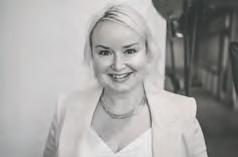
C: 412-760-0412
O: 412-421-9121x225 sherrimayer@howardhanna.com HowardHanna.com

5125 Fifth Ave. 2 & 3 Bedrooms Corner of Fifth and Wilkins Spacious
1500-2250 square feet
”Finest in Shadyside”
412-661-4456
www.kaminrealty.kamin.com



FOR SALE
Jason A. Smith & Caryn Rosenthal

Jason: 412-969-2930 | Caryn: 412-389-1695
Jasonasmith@howardhanna.com
Carynrosenthal@howardhanna.com


SHADYSIDE • $550,000
New listing! Unique 2+ bedroom single family in the heart of Shadyside. Close to restaurants and shopping plus public parking. Great court yard for entertaining. Large 2 car garage.
EDGEWOOD • $429000 - PENDING
First time o ered! Four bedroom cozy home in Regent Square . Charming and move-in ready. Close to shopping and restaurants. Don’t miss this special residence!
POINT BREEZE • $665,000 - PENDING

First time o ered! Meticulous, elegant 4 bedroom 3 bath home with wonderful architectural details. Close to Frick Park, Mellon Park, Bakery Square, Shadyside, and Squirrel Hill. Lovely yardand 2 car garage. Special Home.
GREENFIELD • $250,000 - PENDING
758 Melbourne St
4 Bedroom 2 bath home with central air, Renewal by Andersen windows and Owens Corning roof. Extra storage on first and very convenient location.
JILL and MARK PORTLAND RE/MAX REALTY BROKERS 412.521.1000 EXT. 200 412.496.5600 JILL | 412.480.3110 MARK
ba, 8 rooms, A/C, patio yard, 2 car garage. Unique design with stucco, hardwood floors, stained glass, wrought iron works throughout.

Inquiries: 6681kinsmanroad@gmail.com
Professional Directory






Business
SAFFJR5@gmail.com
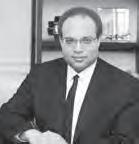
PITTSBURGHJEWISHCHRONICLE.ORG PITTSBURGH JEWISH CHRONICLE SEPTEMBER 1, 2023 21 MELISSAREICH REALTOR®,GREEN,SRES 412-215-8056(M) 412-231-1000(O) RUBINOFFREALTY.COM REPRESENTINGPITTSBURGH’S MOSTCOVETEDADDRESSES RUBINOFFREALTY 1580OVERTONLANE|SQHILL|$1,390,000 VILLAGEHOMEWITH4BEDROOMS,4.5BATHS,2CARGARAGE 1STFLPRIMARYSUITE,YARD&PATIO,SUMMERSETATFRICKPARK NEWLISTING Real Estate REALTOR SERVICES FOR SALE www.pittsburghjewishchronicle.org
Smith-Rosenthal Team
Are You Buying or Selling a Home? Let Us Guide You Through the Process! CALL THE SMITH-ROSENTHAL TEAM TODAY. 5501 Baum Blvd. Pittsburgh PA 15232 Shadyside Office | 412-361-4000
Sale by Owner
bds
For
Squirrel Hill. Charming Spanish Colonial architecture. 4
2.5
RENT
me today to discuss all of your real estate needs!
FOR
Contact
FOR SALE WANTED: Grandma & Pap’s VERY Old Clothing, Costume Jewelry, Hats, Purses, Shoes, Fur Coats/Stoles, Wedding Gowns, Quilts/Textiles. Quantity preferred. Cash Paid - Will Pick Up Toll Free 888-736-7242 BUYING
Cemetery Plots Selling two complete cemetery plots located in the Beth El section of the Mt. Lebanon cemetery. Includes vaults, internments, monuments with base and install. $26,000. 412-370-2767
&
CEMETERY PLOT For evening personal care, over 30 years experience. C.N.A AVAILABLE For excellent care you can count on, DON'T DELAY, Call Dorothy Today! (412) 321-4994 or (412) 537-0567 C.N.A.
Jared Armstrong, basketball player who fought for Israeli citizenship, is now working to promote Black-Jewish relations
By Jacob Gurvis | JTA
Basketball player Jared Armstrong made headlines last year for his months-long effort to obtain Israeli citizenship. Armstrong, who was raised Jewish and completed a Conservative conversion to help his citizenship bid, was rejected multiple times before being granted temporary residence last May. The case drew attention from prominent Jewish leaders and drew accusations of racism. It also cost him a spot on Hapoel Haifa, a team in Israel’s top basketball league, he told the Jewish Telegraphic Agency. The team voided his contract because he didn’t receive citizenship in time.
But last weekend, before returning to play hoops in Israel’s second-tier league, Armstrong was planning to put the drama aside to focus on something else he is passionate about: strengthening the relationship between the Jewish and Black communities.
On Sunday, Armstrong planned a free basketball clinic for sixth, seventh and eighth graders in Philadelphia. He hopes to start a two-week summer camp next year to continue this work.
“With a rich history of Black and Jewish relations, and kind of where we’re at in society, it’s only right that we come closer together,” Armstrong said. “I thought it would be great to do that starting from the youngest age and up.”
The controversies and accusations of antisemitism surrounding rapper Kanye West and NBA star Kyrie Irving last year led to increased calls for collaboration between the Black and Jewish communities, from members of Congress to other prominent sports leaders like New England Patriots owner Robert Kraft.
Armstrong said 28 kids signed up for his
clinic, including both Jewish and Black athletes, with some attendees coming from as far as Connecticut. His goal is to use sports as a vehicle for combating antisemitism and racism, and he hopes that as many as 80 sign up for a camp next year.
“I think at a young age, most kids have a passion for something they love,” Armstrong said. “Sports are normally the first thing they fall in love with, and it’s a great way to build community, build lifelong relationships and learn a lot of life lessons.”
Last weekend’s participants were scheduled to hear from Eric Rubin, a veteran financial executive who is involved in several Jewish organizations aimed at using sports to combat hate.
Rubin is the managing director of Project Max, a collaboration between the Maccabi World Union sports umbrella and the Israeli AI company Sighteer. Its mission is to “fight racism, antisemitism, and intolerance through sports.” Armstrong sits on the group’s advisory
board. Rubin is also a board member of Athletes for Israel, the organization that has organized Israel trips for a number of top U.S. collegiate basketball teams.
Armstrong said Rubin would speak to the participants about “the importance of community and being able to work with people that are different from you.” Attendees will also would meet American former professional basketball player Bilal Benn, who has played in Israel.
Growing up in Severn, Maryland, before moving to Philadelphia during middle school, Armstrong was raised Jewish by a mother whose conversion is not recognized by any of the major Jewish denominations. His own conversion was overseen by Rabbi Michael Beals, a Conservative rabbi in Delaware known for his close relationship with President Joe Biden. Beals has said that Israel’s rejection of Armstrong’s citizenship application was an “insult to the Conservative movement,” whose rabbis have struggled for recognition in a state where religious affairs are
dominated by Orthodox rabbis.
At the same time Armstrong’s case was denied by Israel’s Interior Ministry last year, Portuguese soccer player Miguel Vitor was granted citizenship to play soccer in Israel. Israeli media questioned why Vitor received preferential treatment while Armstrong saw his case drag on with no resolution.
At the end of the month, Armstrong, who played Division II basketball at Slippery Rock University in Pennsylvania, is headed back to Israel to join Elitzur Ironi Ashkelon, a team in Liga Leumit, or National League, Israel’s second tier of professional basketball. Last year, he ultimately played for Maccabi Rishon LeZion, which is also in Liga Leumit. The season begins in October.

“I have lifelong friends that I’ve made in Israel, not only through my case, but outside of my case and through playing basketball,” Armstrong said. “I love the country as a whole. I love being there. I love the experience. It’s my second home.”
Armstrong said he hasn’t faced any racism in Israel, but rather what he called ignorance from those who question his Jewishness based on the color of his skin.
“I think there’s just a lack of information that I see not only Israel, [but] in the American community as well,” Armstrong said. “That needs to change.”
Beals told JTA that he and Armstrong are still in touch throughout the year, especially when Armstrong is in the U.S.
“I only have great things to say about Jared Armstrong — his persistence, his vision, his ability to turn lemonade from lemons,” Beals said.
Beals praised Armstrong for staying the course through his citizenship fight. “Other people would’ve given up, but he had a bigger picture of what he wanted to achieve,” Beals said.
“He really personifies everything I would hope for in a human being,” Beals added. PJC
22 SEPTEMBER 1, 2023 PITTSBURGH JEWISH CHRONICLE PITTSBURGHJEWISHCHRONICLE.ORG
GreenTree 661 Andersen Drive • Foster Plaza Building 7 Pittsburgh, Pa 15220 Phone 412-921-106 2 • Fax 412-921-1065 Lunch For private functions please contact Linda Sciubba Hours: Mon. 11:30AM-2:00PM Tues.-Fri. 11:30AM-9:00PM Sat. 5:00PM-9:30PM We are offering our limited menu, family style menu and our weekend features. Call for details: 412-921-1062 Phones are answered Tuesday thru Saturday 11am till 7pm and pickup is from 2pm till 7pm. Please check out our website and facebook page GreenTree 661 Andersen Drive • Foster Plaza Building 7 Pittsburgh, Pa 15220 Phone 412-921-106 2 • Fax 412-921-1065 Lunch For private functions please contact Linda Sciubba Hours: Mon. 11:30AM-2:00PM Tues.-Fri. 11:30AM-9:00PM OPEN FOR MOTHER’S DAY We are offering our limited menu, family style menu and our weekend features. Call for details: 412-921-1062 Phones are answered Tuesday thru Saturday 11am till 7pm and pickup is from 2pm till 7pm. Please check out our website and facebook page GreenTree 661 Andersen Drive • Foster Plaza Building 7 Pittsburgh, Pa 15220 OPEN FOR MOTHER’S DAY 3473 Butler Street, Pittsburgh, PA 15201 412.586.4347 | sentirestaurant.com Free off street parking after 6:00PM Italian Restaurant and Wine Bar
Life & Culture
Restaurants
— SPORTS —
p Jared Armstrong, right, playing professional basketball in Israel
Photo courtesy of Jared Armstrong
After a great summer vacation, Community Day School welcomed students for the start of school. First-day festivities included high-fives and family photos.
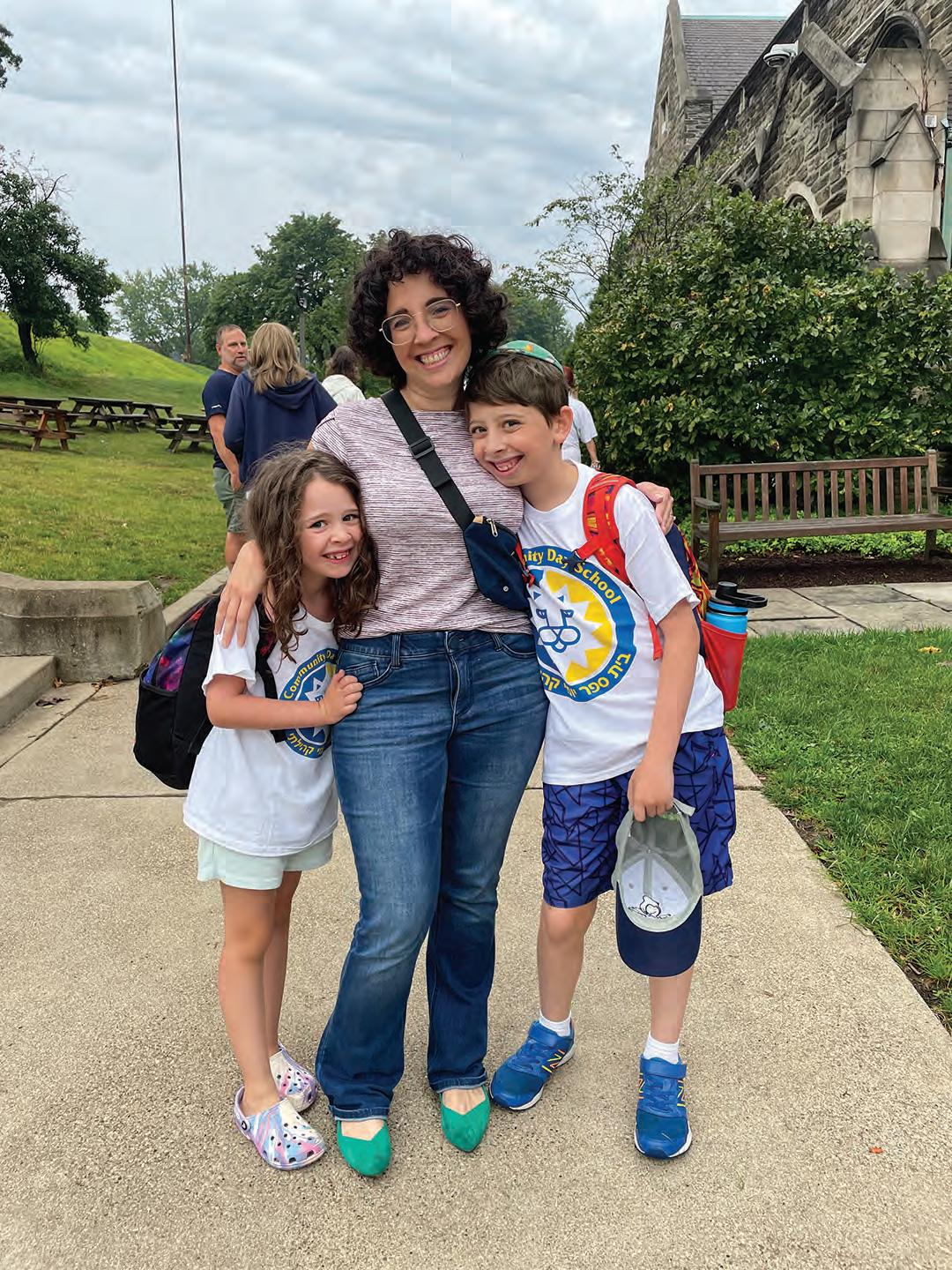
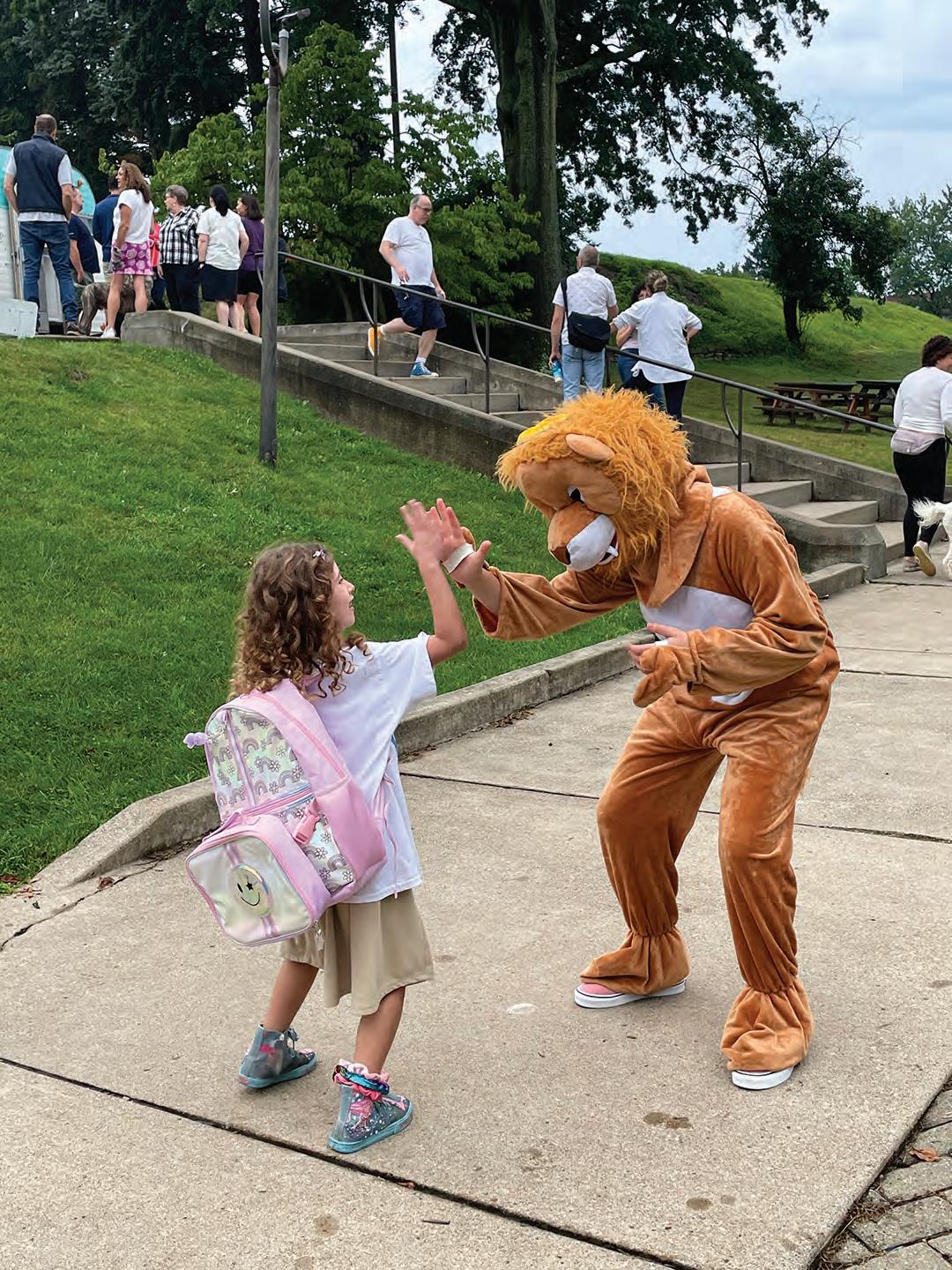
burial ceremony. The Aug. 27 program enabled participants to learn about appropriate burial procedures for holy books and sacred Jewish writings. Along with learning from Beth Shalom’s spiritual leaders, congregants and community members toured Beth Shalom’s cemetery.
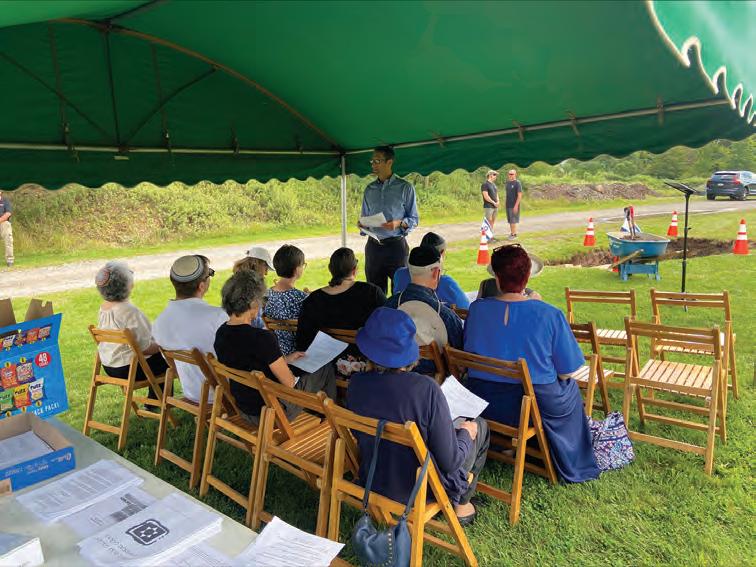
This is how we roll
Hillel JUC welcomed students to campus with an outing to Pins, where visitors enjoyed pinball, foosball and duckpin bowling.
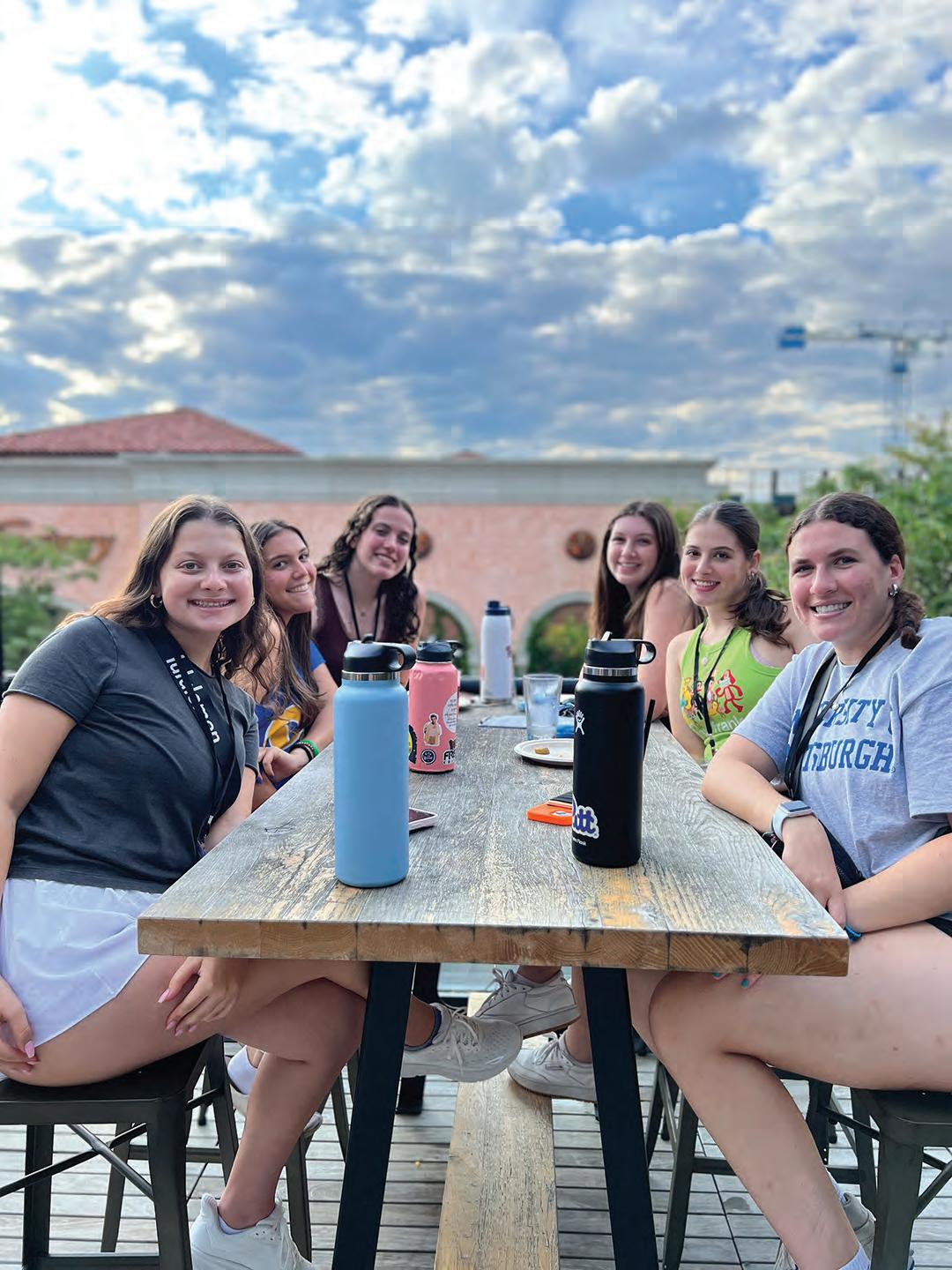
A day of rest outdoors
Temple David congregants celebrated “Shabbat on the Lawn” in their newly renovated outdoor sanctuary. Services were followed by a potluck picnic.


SBURGH JEWISH CHRONICLE 23
p Having fun in their spare time
Photo courtesy of Hillel JUC
p Quite the kiddush
Photo courtesy of Temple David
p
Photos courtesy of Rabbi Mark Asher Goodman
p School is great. We’re not lion.
p Levana, Inbal and Addan Vellucci are all smiles. Photos courtesy of Community Day School
KOSHER MEATS
•Variety of deli meats and franks

•All-natural poultry — whole chickens, breasts, wings and more
•All-natural, corn-fed beef — steaks, roasts, ground beef and more
Available at select Giant Eagle stores. Visit GiantEagle.com for location information.
16 oz. pkg.
save with your Advantage Card
Price effective Thursday, August 31 through Wednesday, September 6, 2023
24 SEPTEMBER 1, 2023 PITTSBURGH JEWISH CHRONICLE PITTSBURGHJEWISHCHRONICLE.ORG
Empire Kosher Chicken or Turkey Franks
Available at and
349
ea.
 By Toby Tabachnick | Editor
By Toby Tabachnick | Editor











































































































